Source: Bruther
Photography: Julien Hourcade, Maxime Delvaux, Marvin Leuvrey, Salem Mostefaoui
Located on the southern edge of the majestic park of the Cité Universitaire, the “Maison Julie-Victoire Daubié” (home of a residence for young researchers) has the privilege of enriching one of the capital’s most beautiful collections of modern architecture. Building in a park, without apparent common ownership, does not prevent strong constraints. The presence of the ring road, at the edge of the plot, requires several protective devices: semi-underground access levels -still allowing sight and light to pass through- as well as high acoustic performance facades. In addition, the small size of the plot (just over 1000 m2 for a programme established at 4 629 m2) requires a real volumetric compactness. Thank to the way it deals with these data, the building doesn’t endure the context. It even gives the impression that it opens up to the outside world more than it protects itself.
Free on its four sides, the residence is immediately identifiable as a “split and raised” cube, the organization of which is easily readable through its section. Above the reception areas located in a semi-buried garden level, the first floor of the apartments is 2m90 above the ground level of the Cité Universitaire. The 106 apartments (offering from one to four rooms) are spread over seven levels. The total height of the building is 24.95 meters. The entrance areas are therefore covered and protected by the elegant underside (all in silky ribbed concrete) of the housing block.
The typological organization of the plan is based on three parallel strips oriented on a north-south line: two of them are dedicated to housing units and between them, a hollow strip accommodates all the circulations. Far from simple functionalism, the triangular staircase and the elevator are affirmed in autonomous plastic volumes.
On the last and eighth floor, the circulation area widens to form a large collective terrace, protected by transparent railings, while the top of the “east strip” houses a fitness room with a view of the city. In a way, it becomes possible to jog on the ring road. These common places affirm the collective dimension of the building, as well as its spectacular relationship with its environment.
The layout of the dwellings uses a tight structural grid (6.30 m x 6.65m) to compact the service rooms and offer living spaces that are widely open, facing due west and due east. From the two rooms apartments, sliding partitions can be used to merge the different rooms and transform the housing unit into a large open volume.
The structural efficiency, the absence of vis-à-vis and the singularity of the context allow the façade to take the form of a majestic curtain wall (with high acoustic performance), but far from a homogeneous glass surface. The unit scale of the housing remains readable by scanning the horizontal sashes, as well as in the background, by the set of full height colored curtains.
More than a contemporary re-reading of the pavilion typology, this new residence becomes a beautiful setting of glass and metal, exploiting the path and transparency between exterior and interior, park and building, privacy of the housing and kinetic spectacle of the peripheral boulevard. The moving view is also a component of the building design. During the day, its glass facades grant a certain majesty. At night, the lights of the apartments transform the building into a lantern. By day and by night, this is a new signal of contemporaneity at the Cité Universitaire.
@MaximeDelvaux
Esta entrada aparece primero en HIC Arquitectura http://hicarquitectura.com/2019/04/bruther-residence-for-researchers/
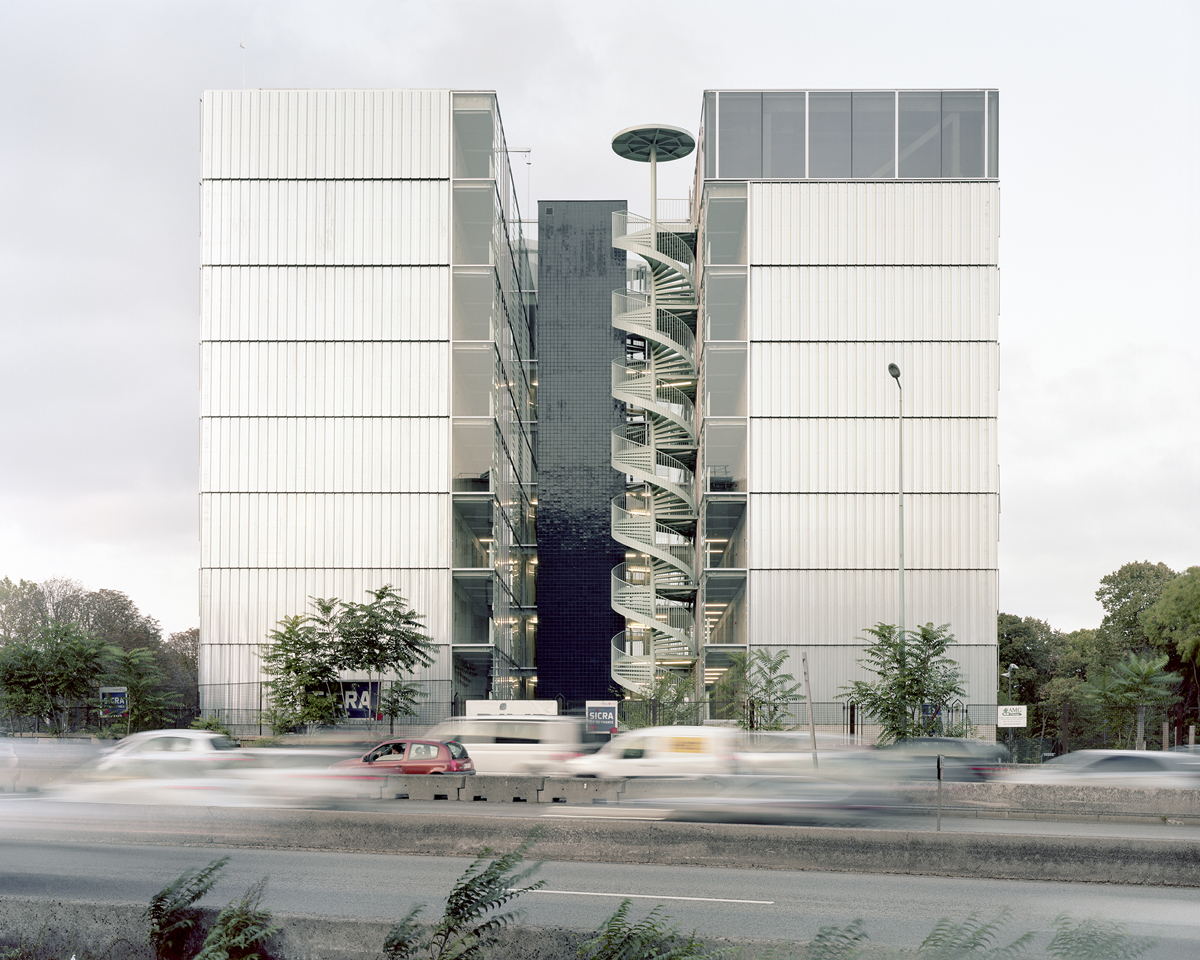
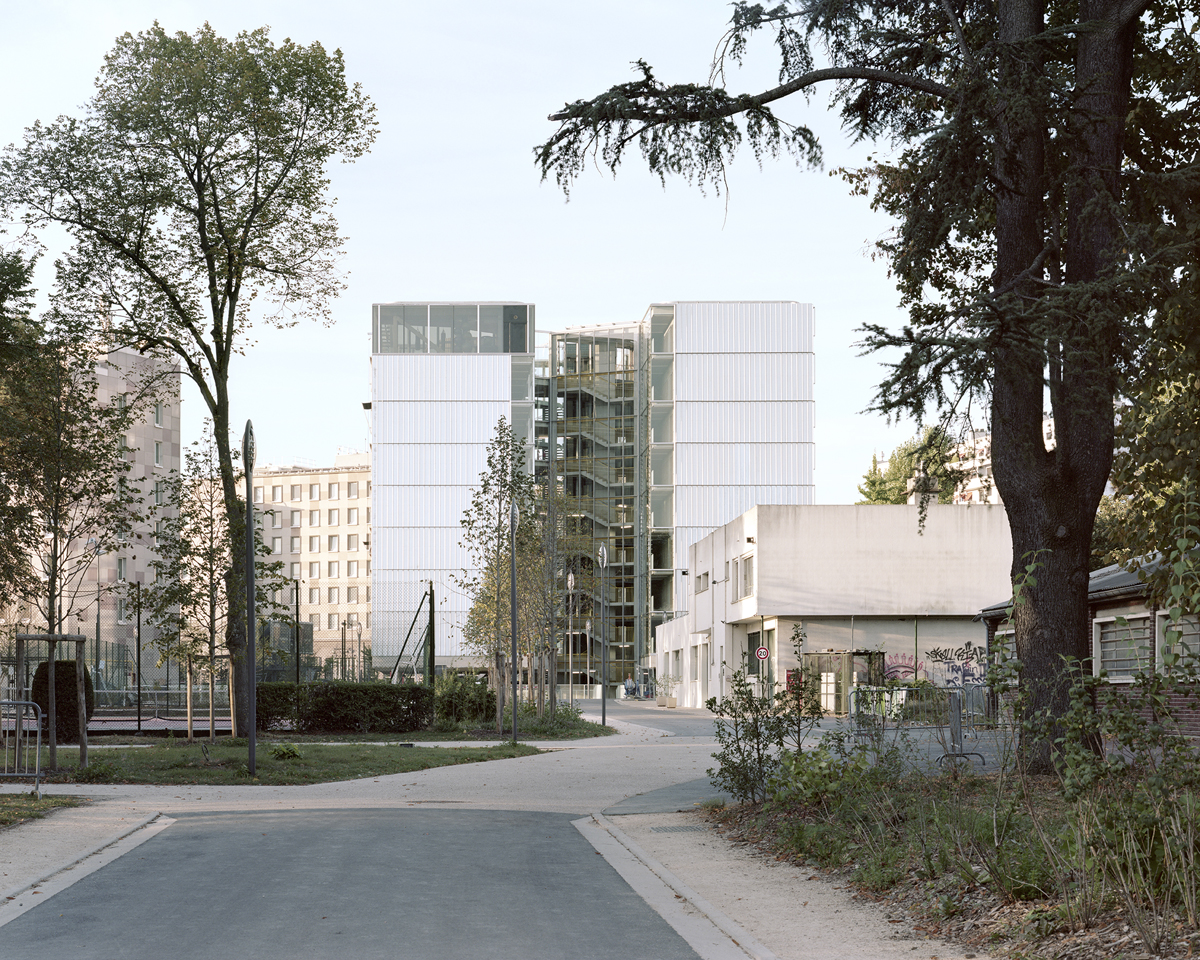
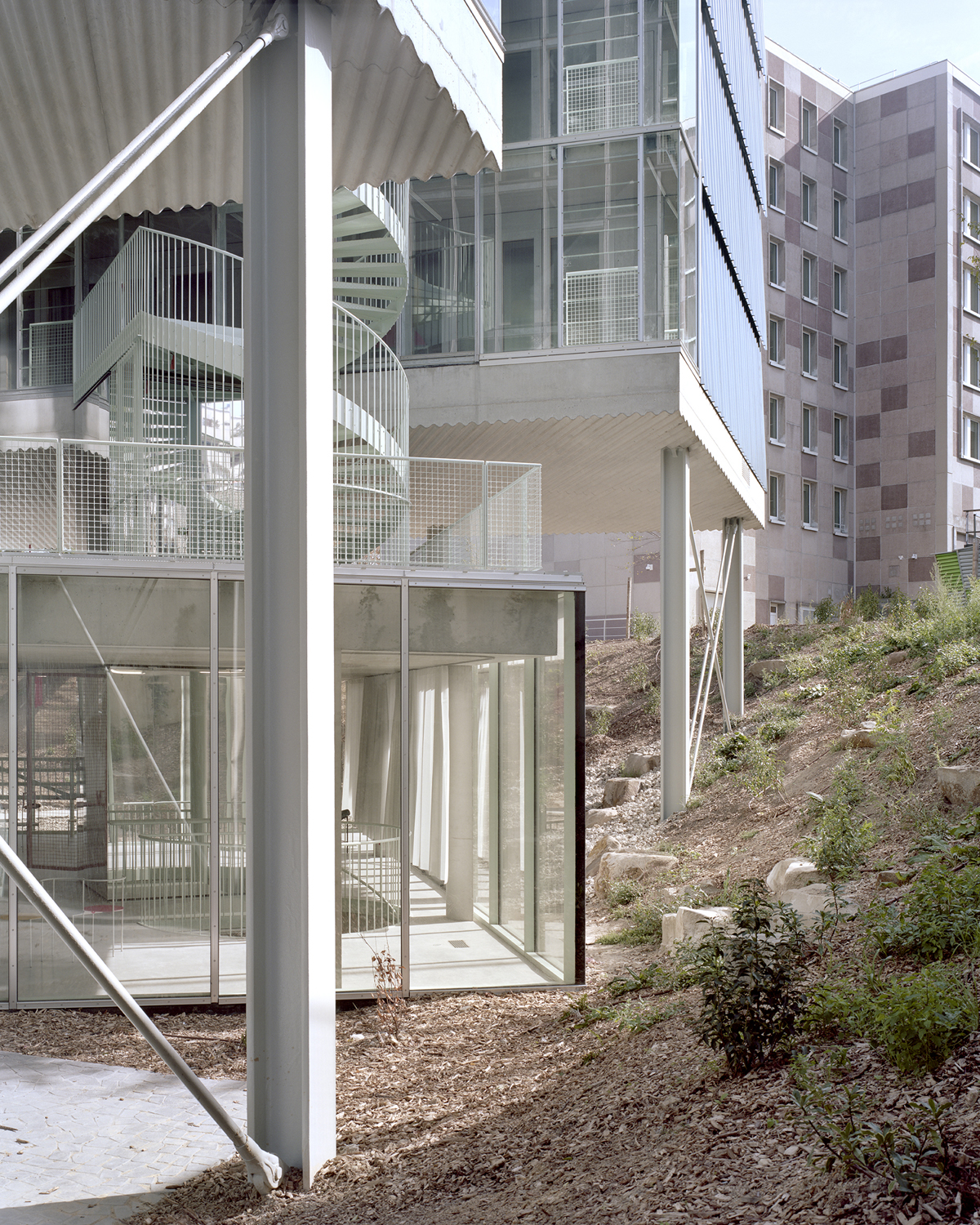
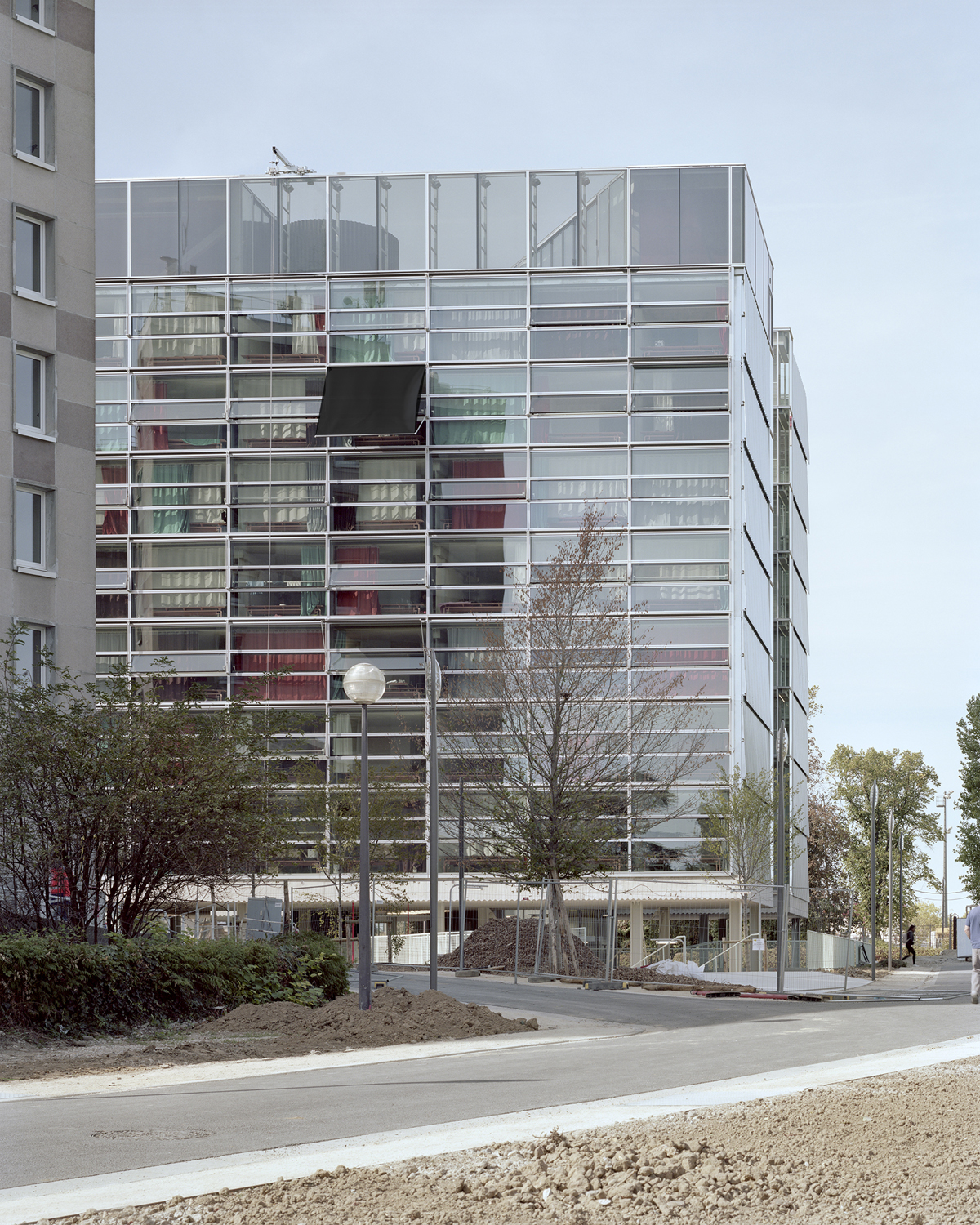
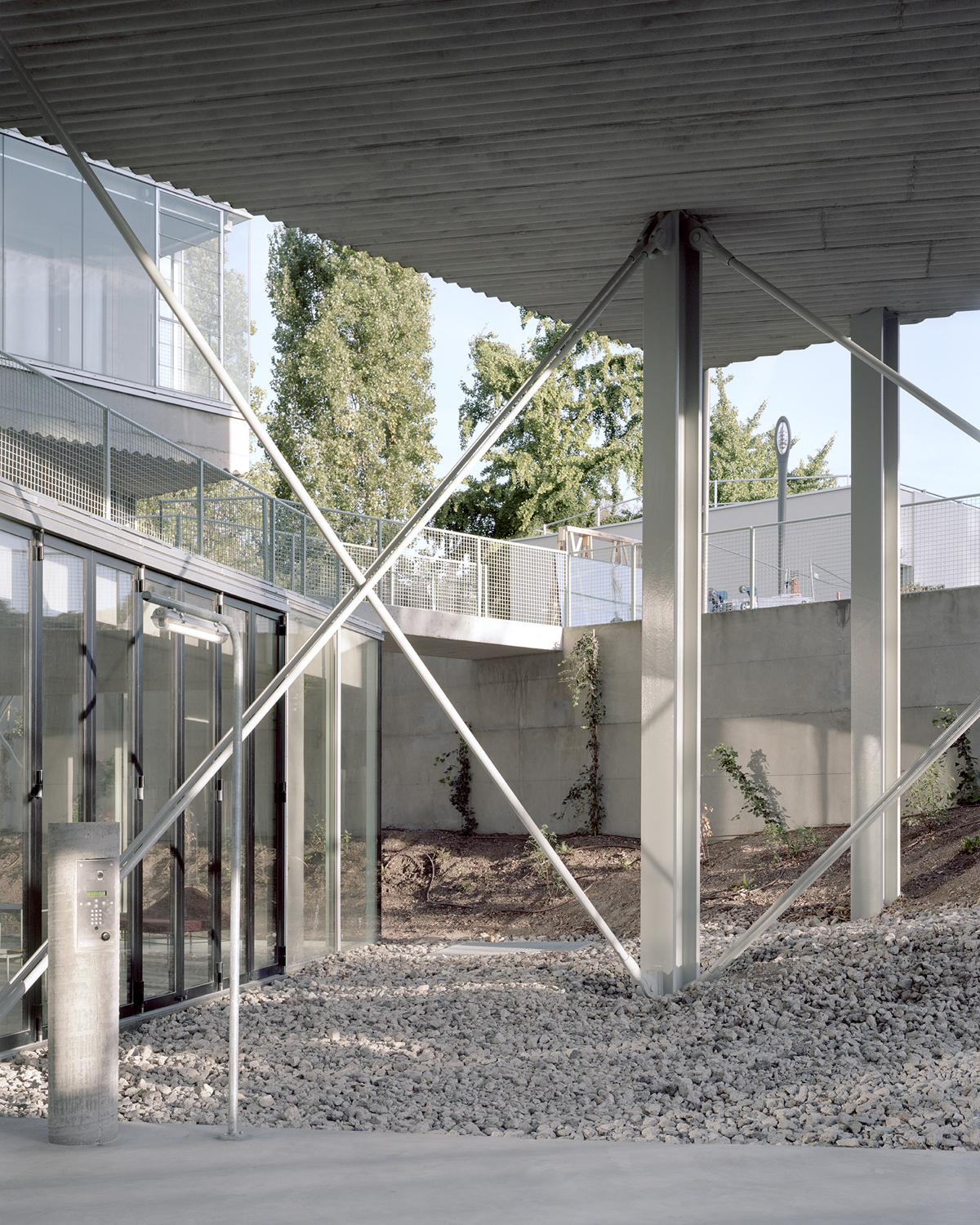
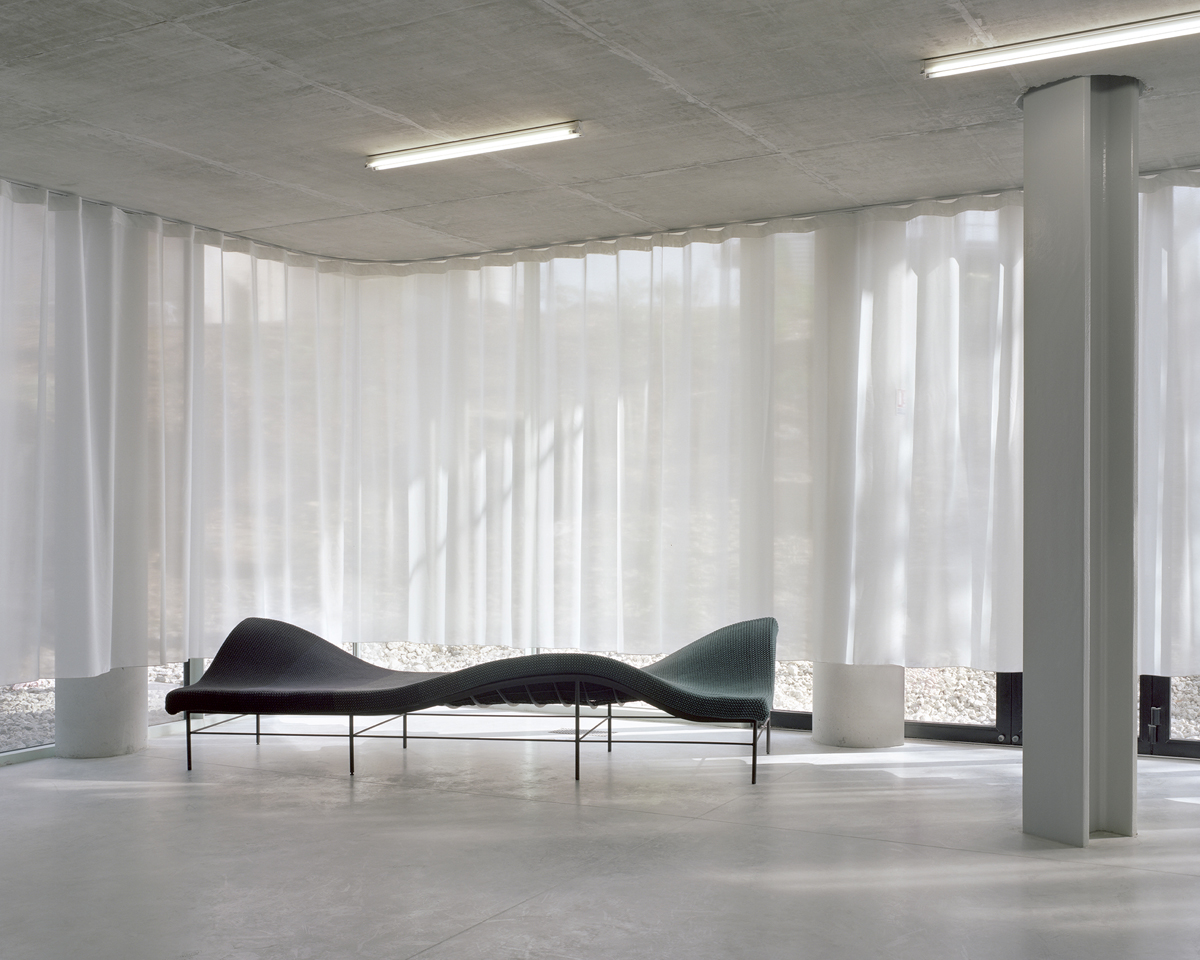

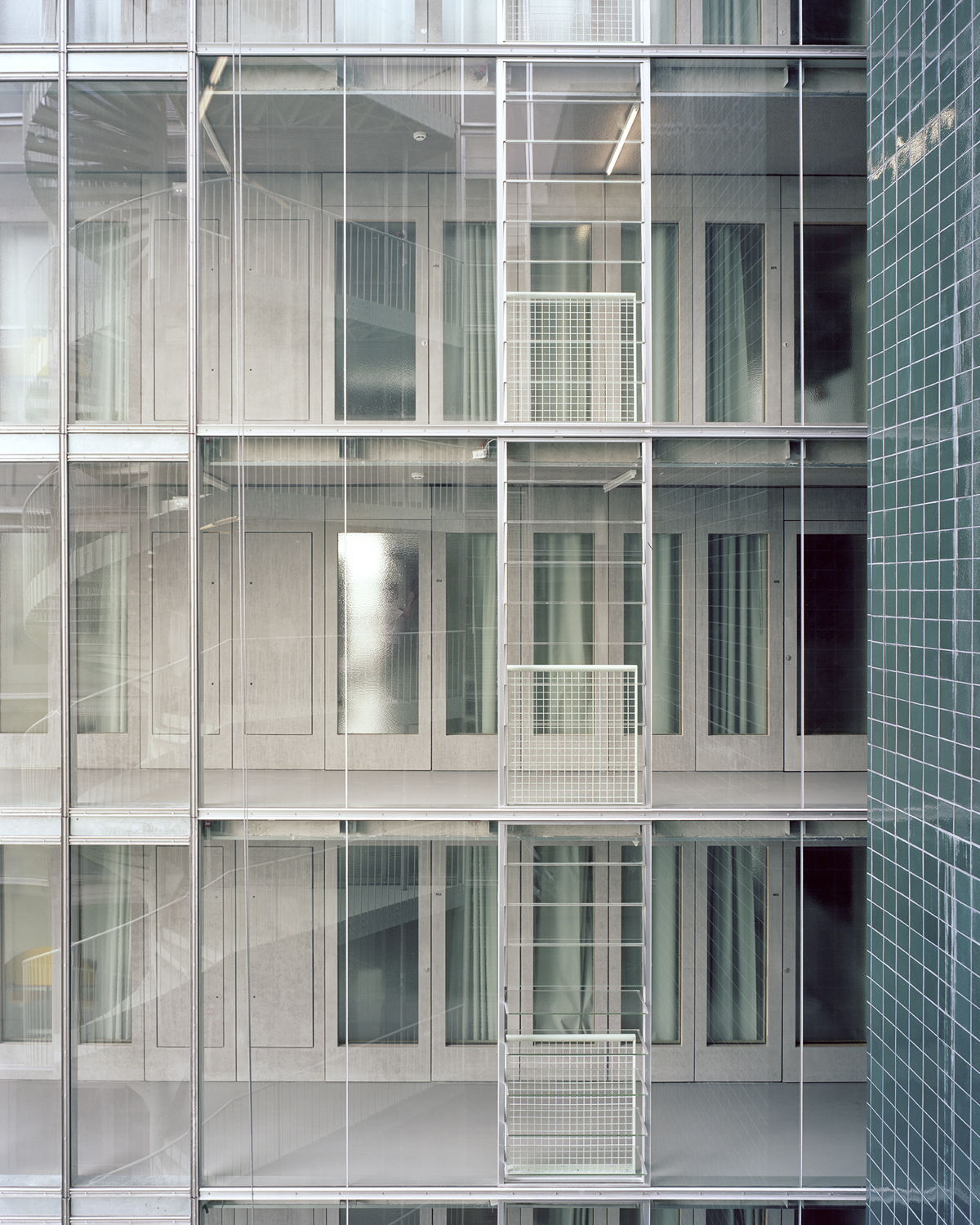
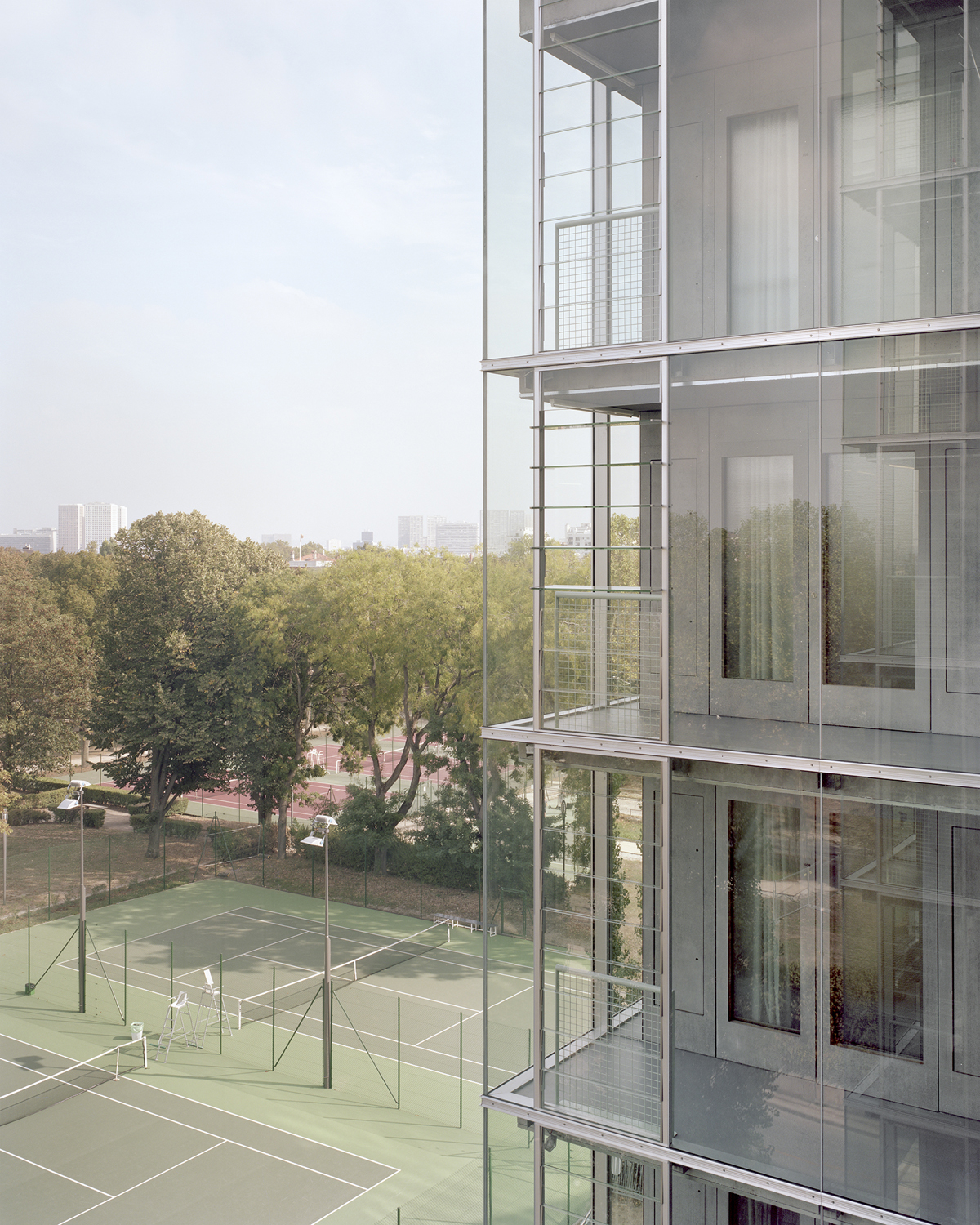
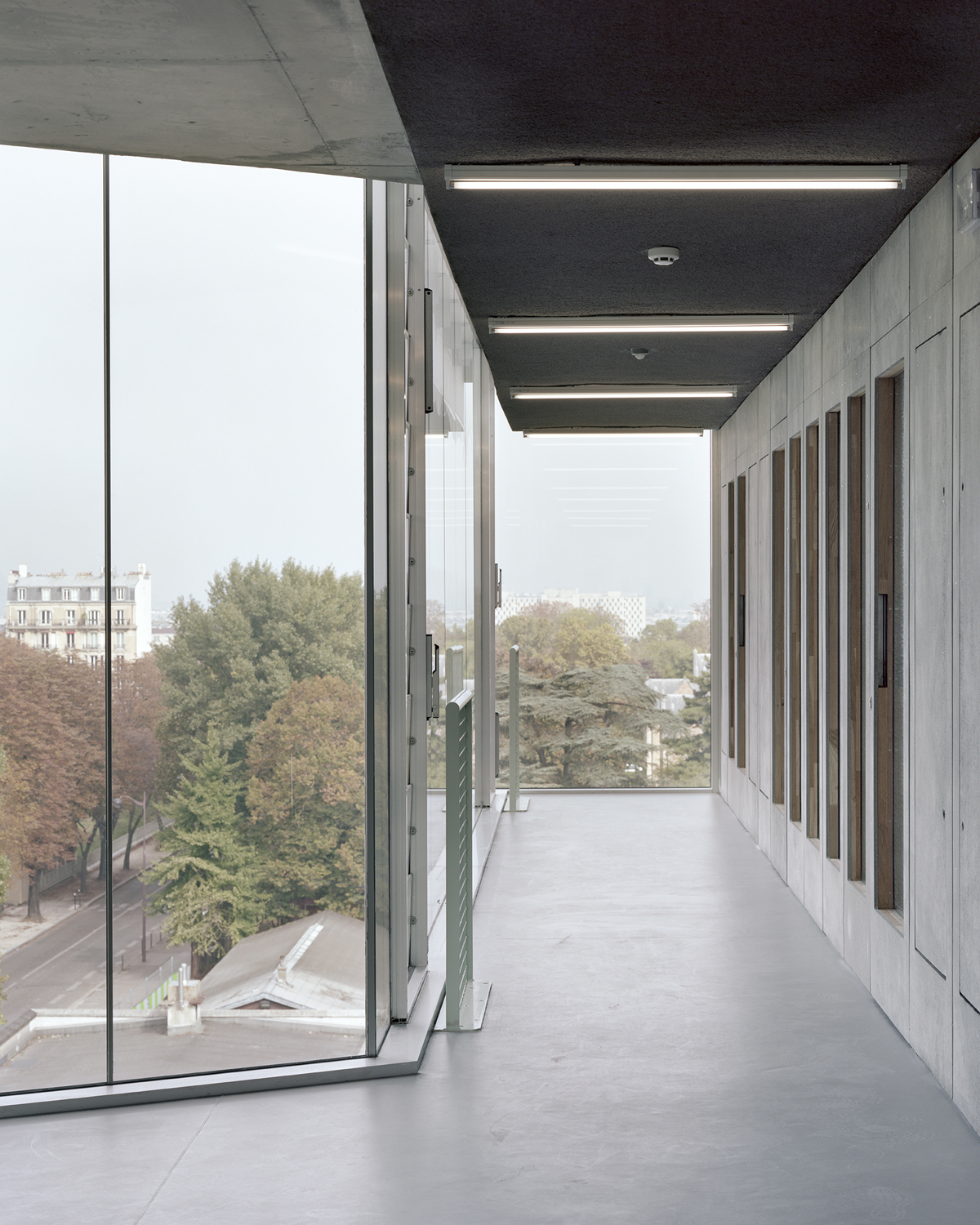
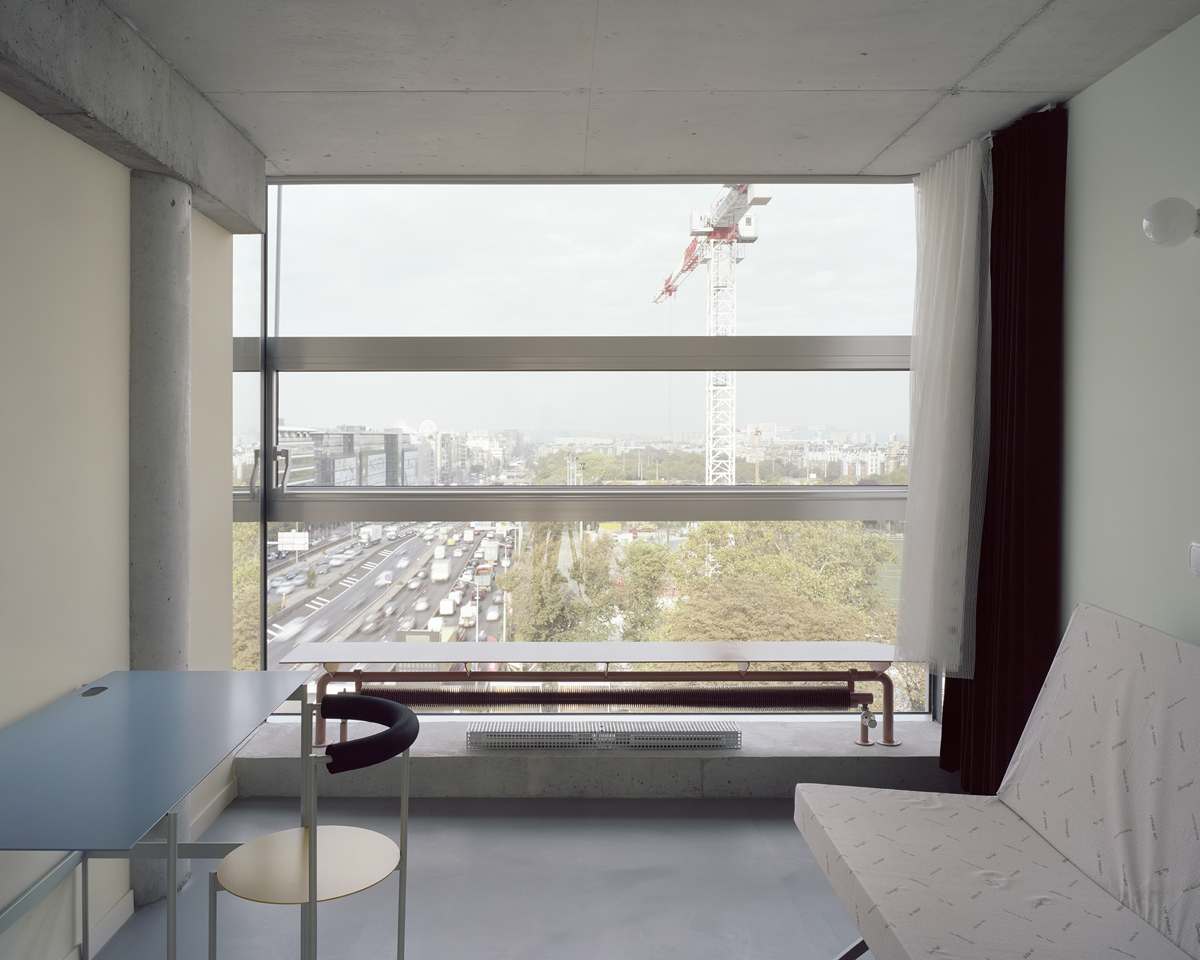

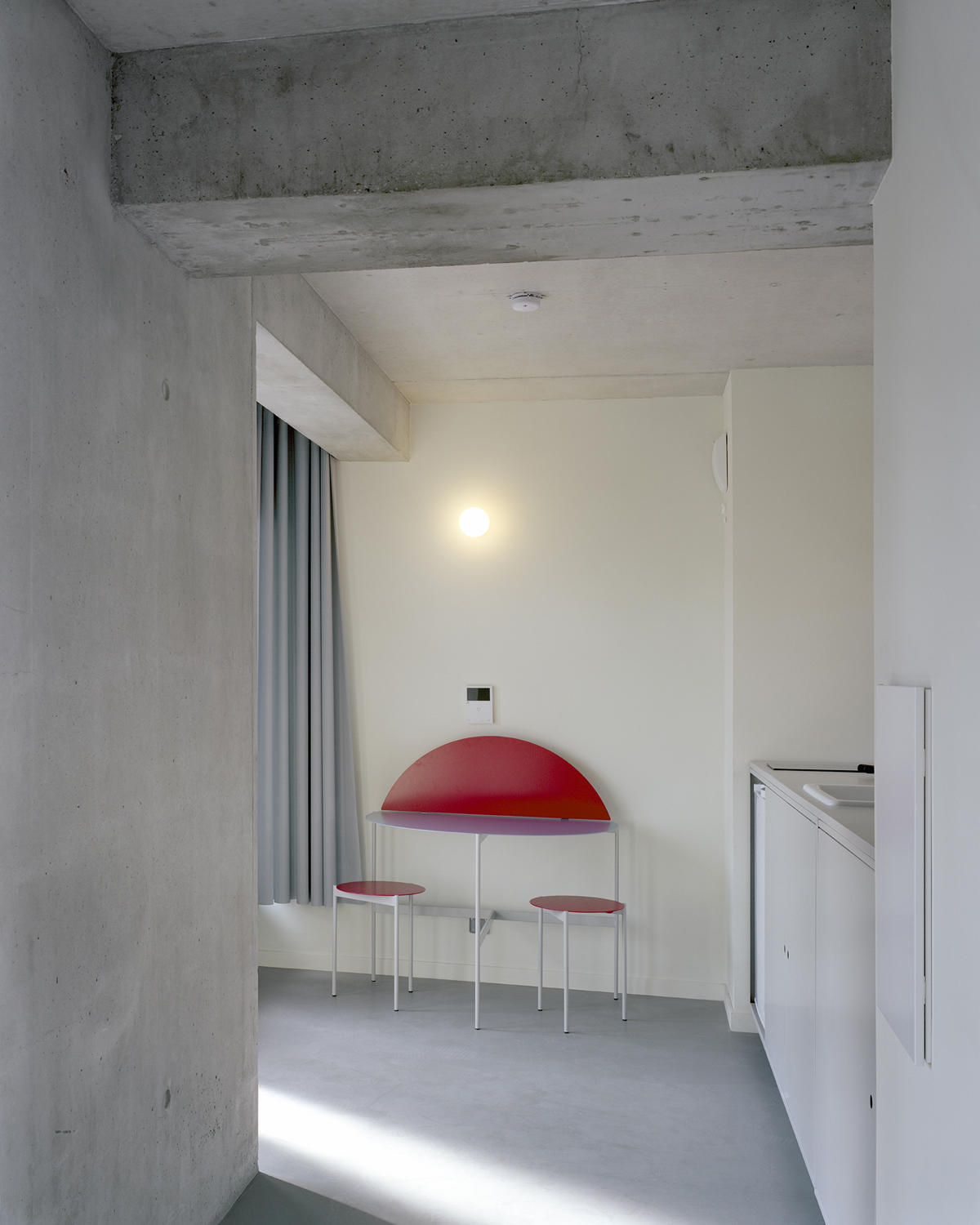
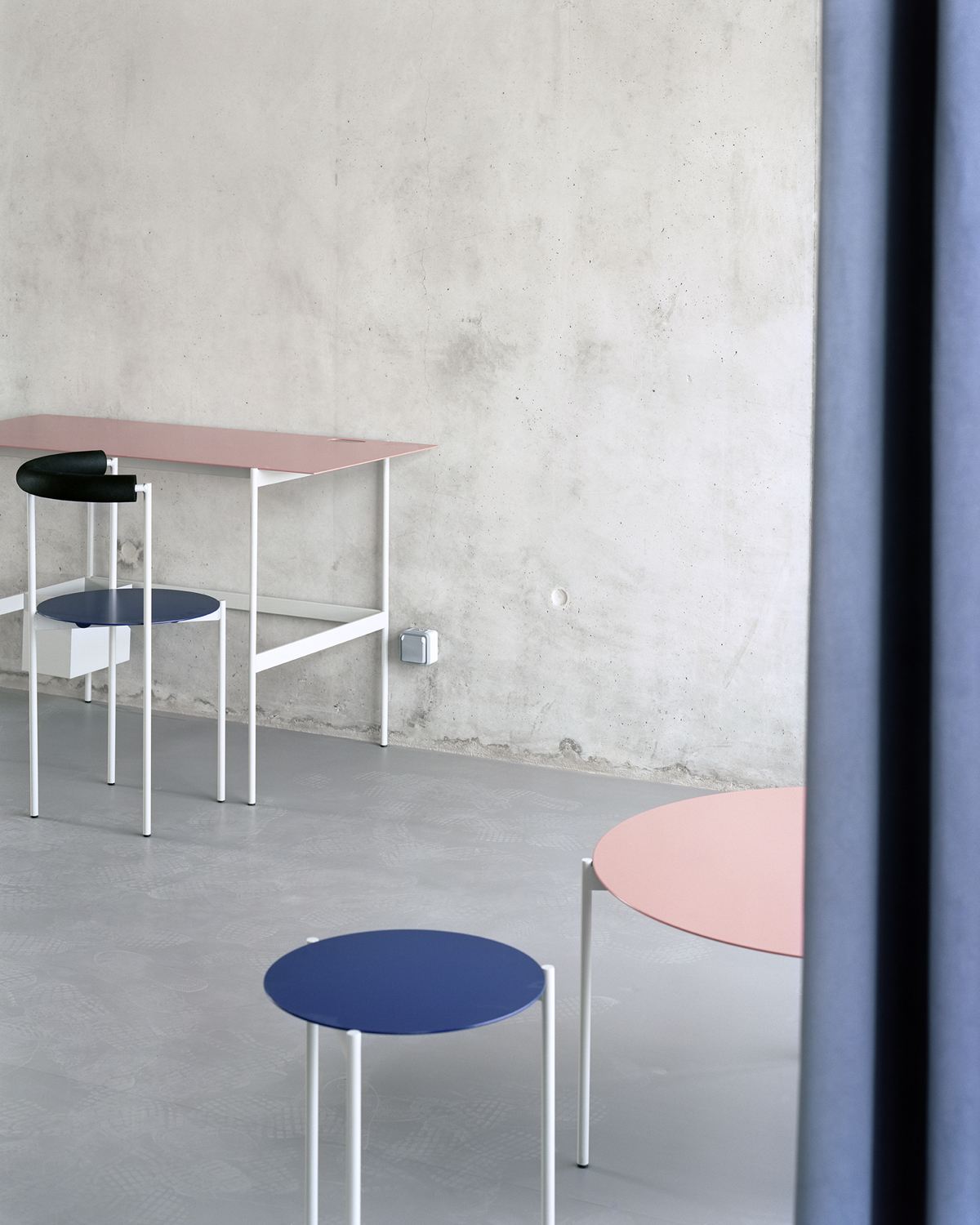
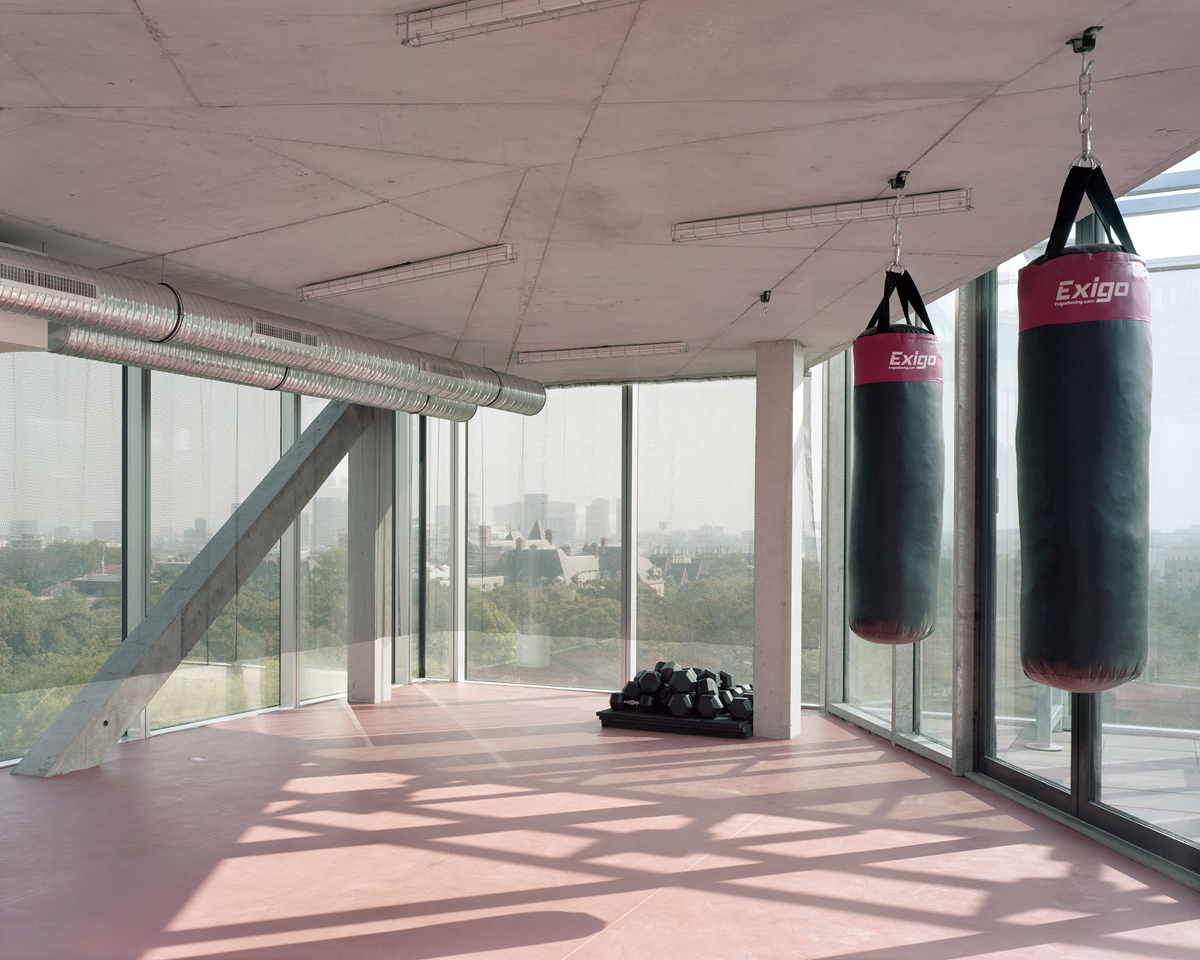
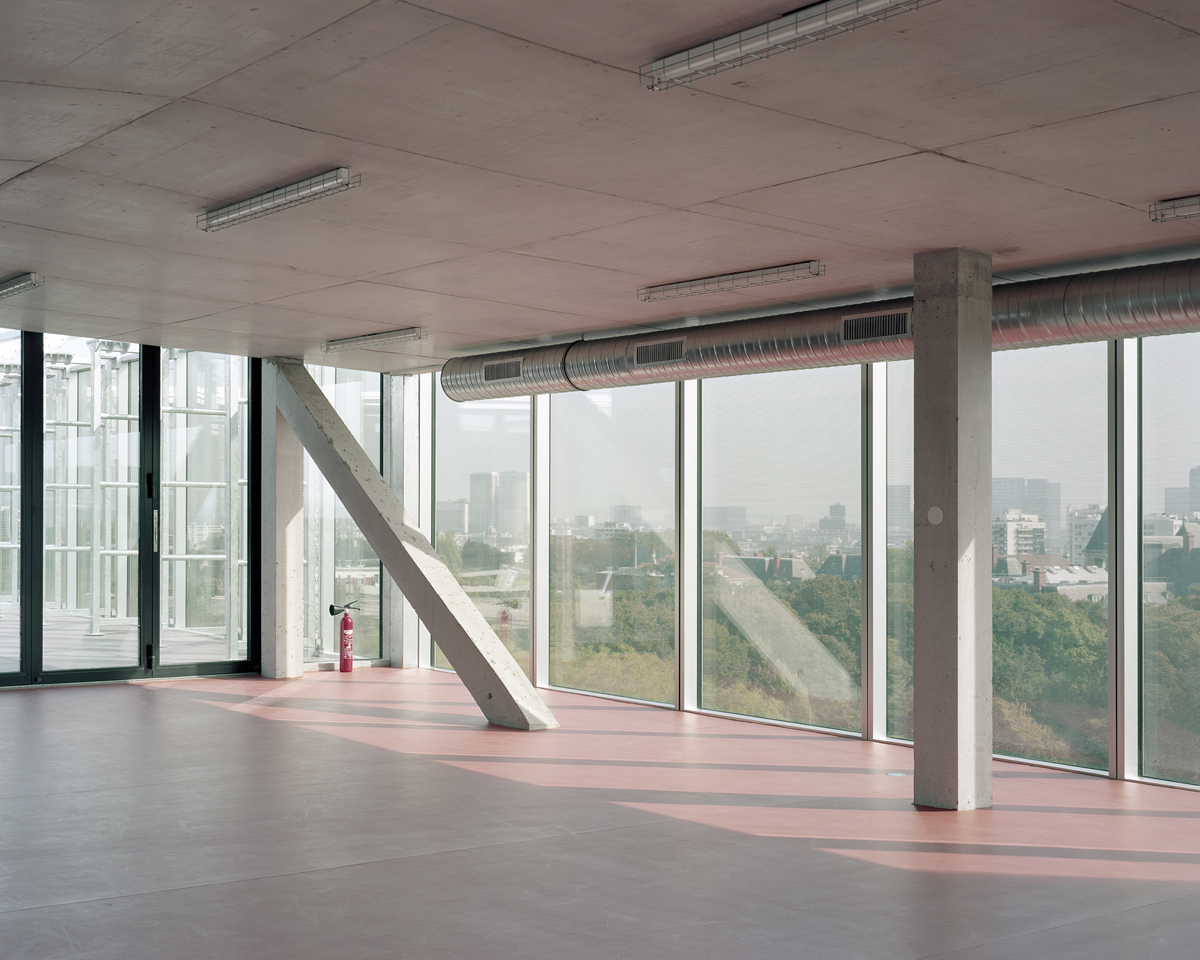
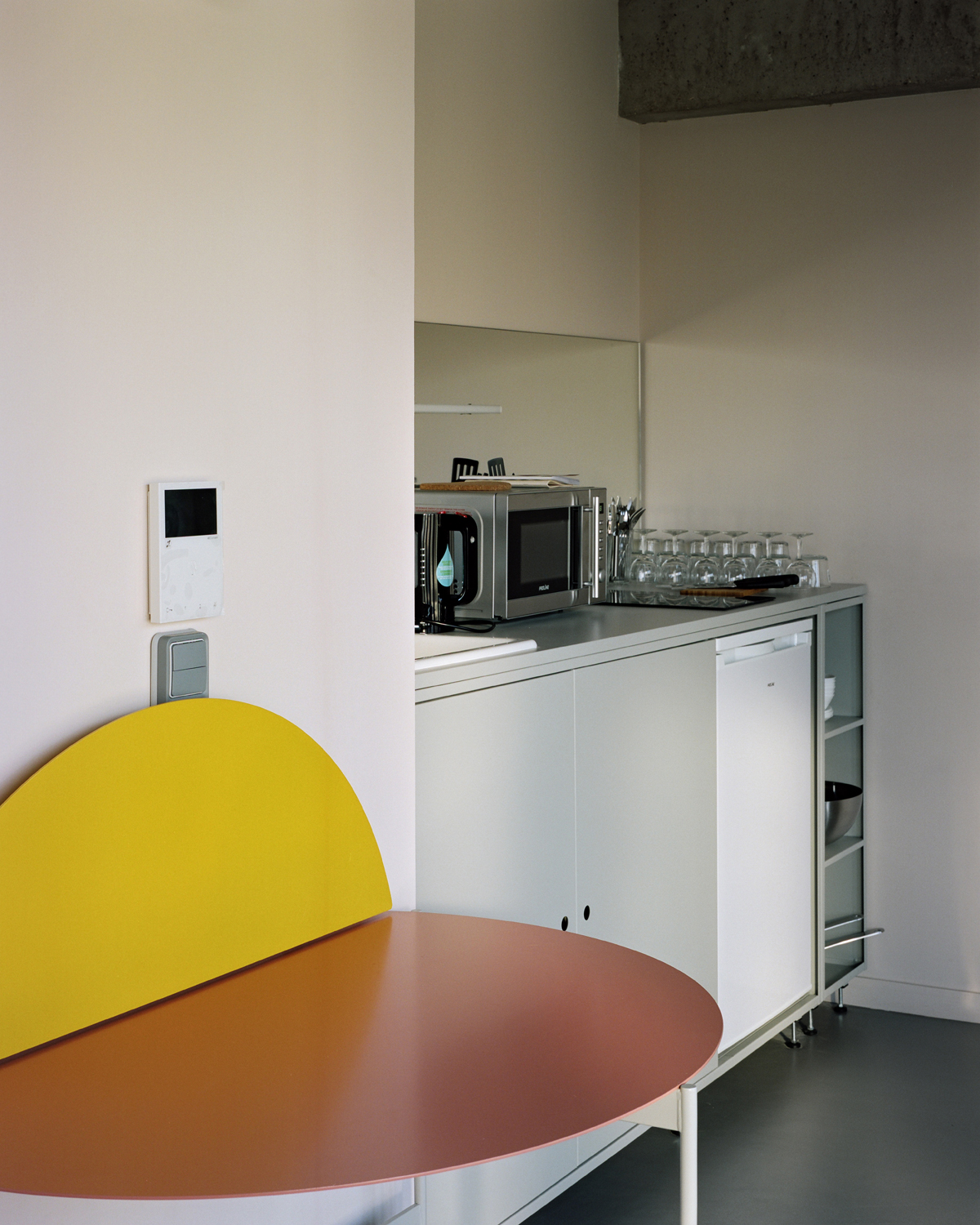

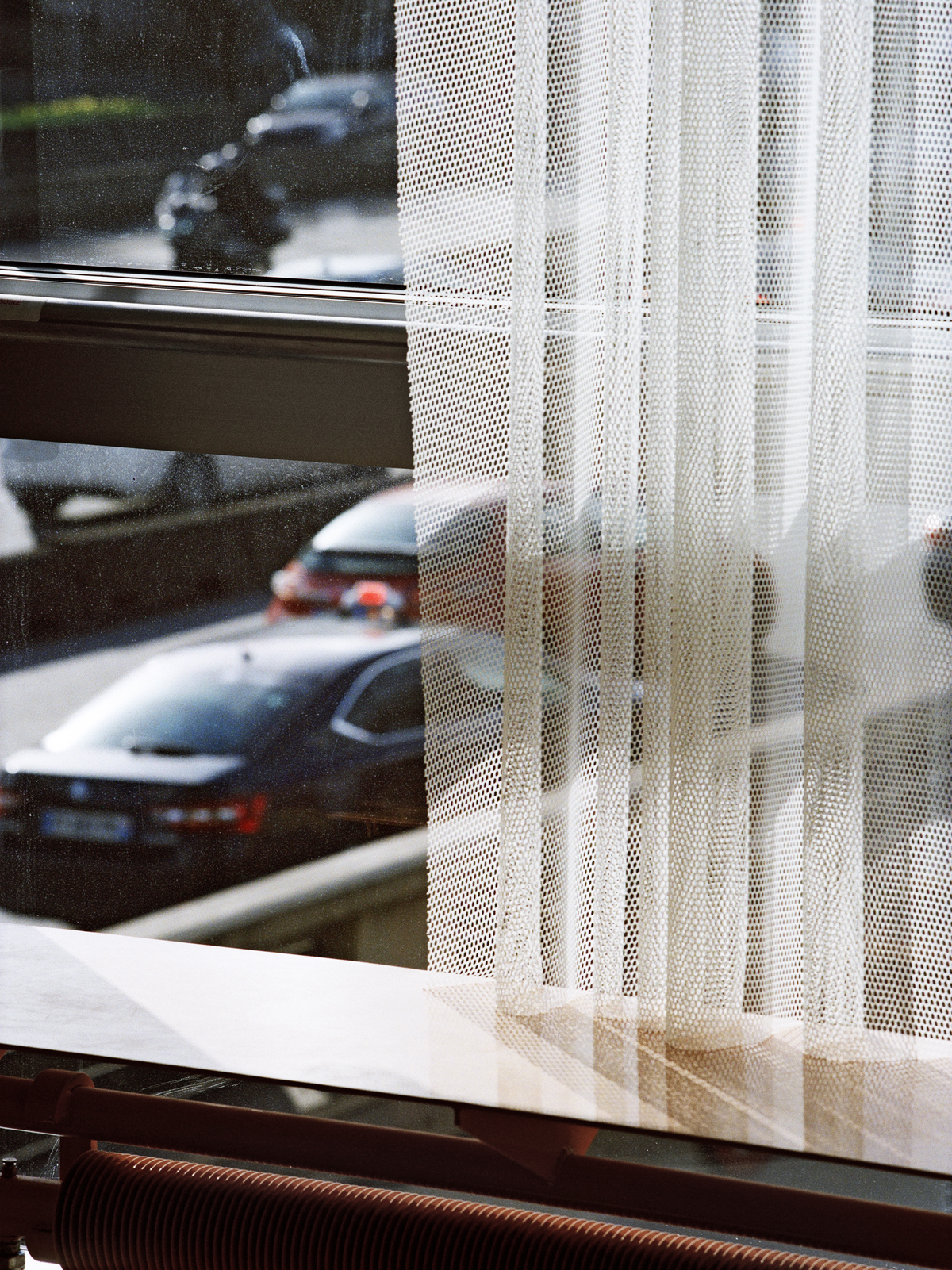
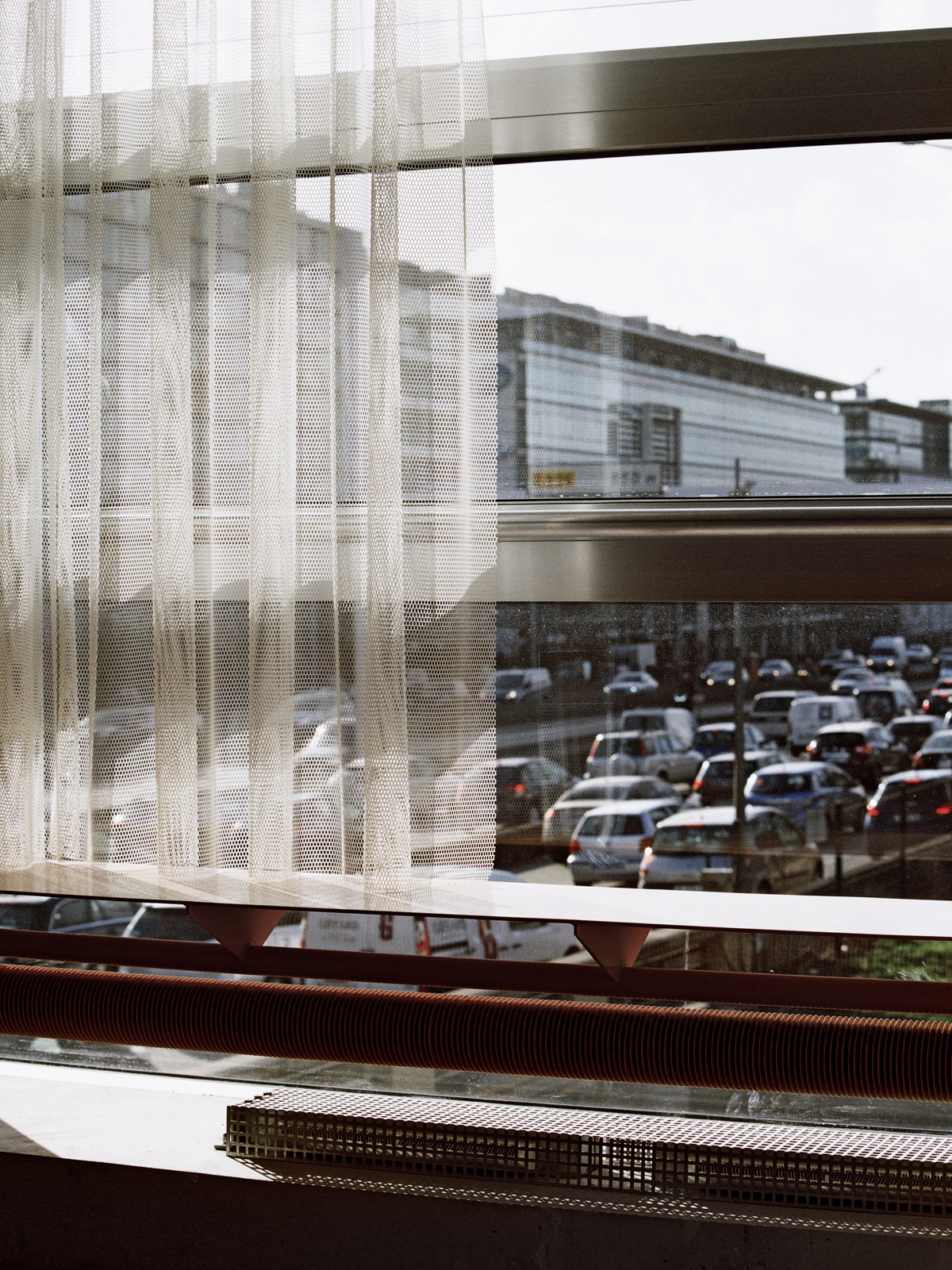
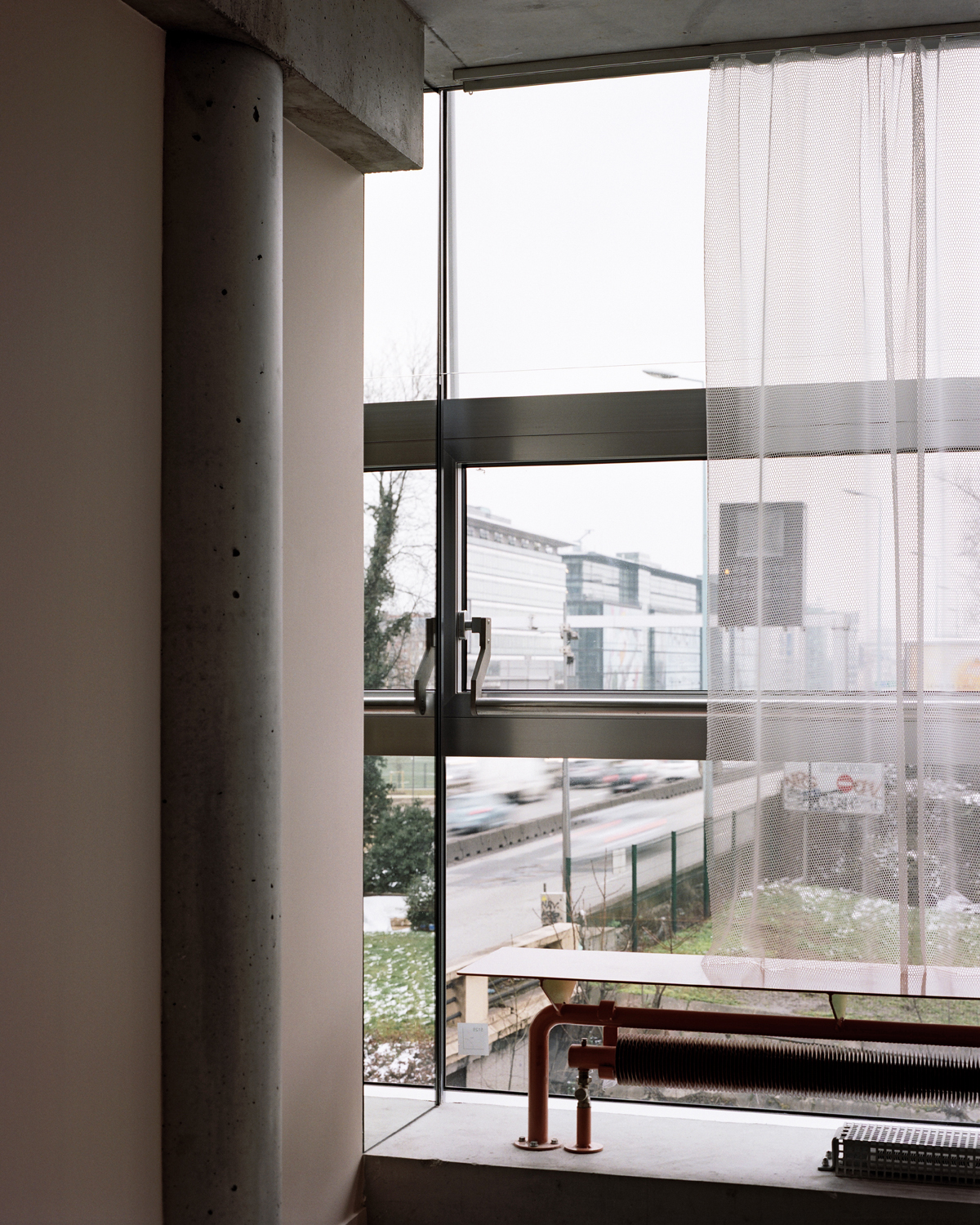
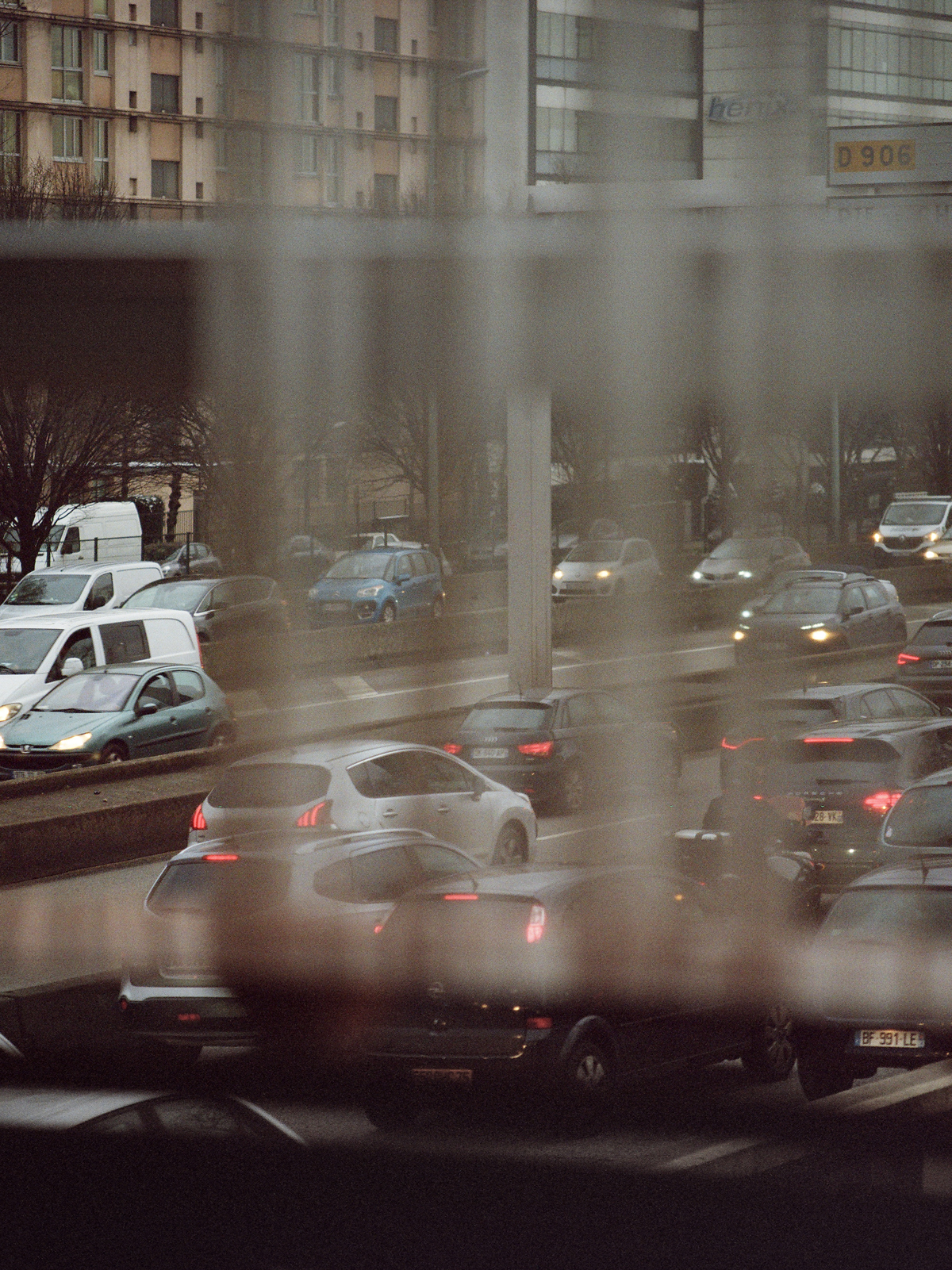
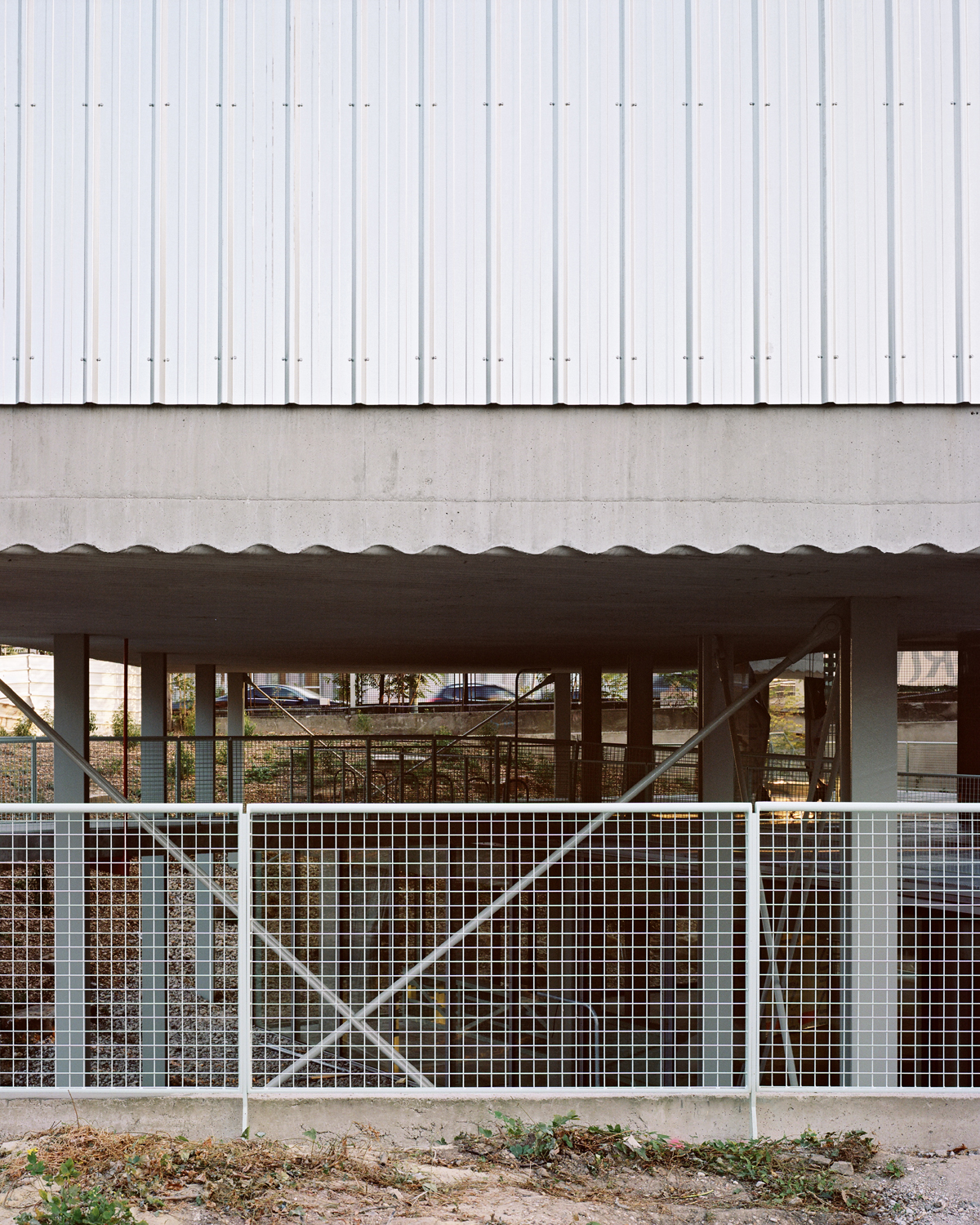
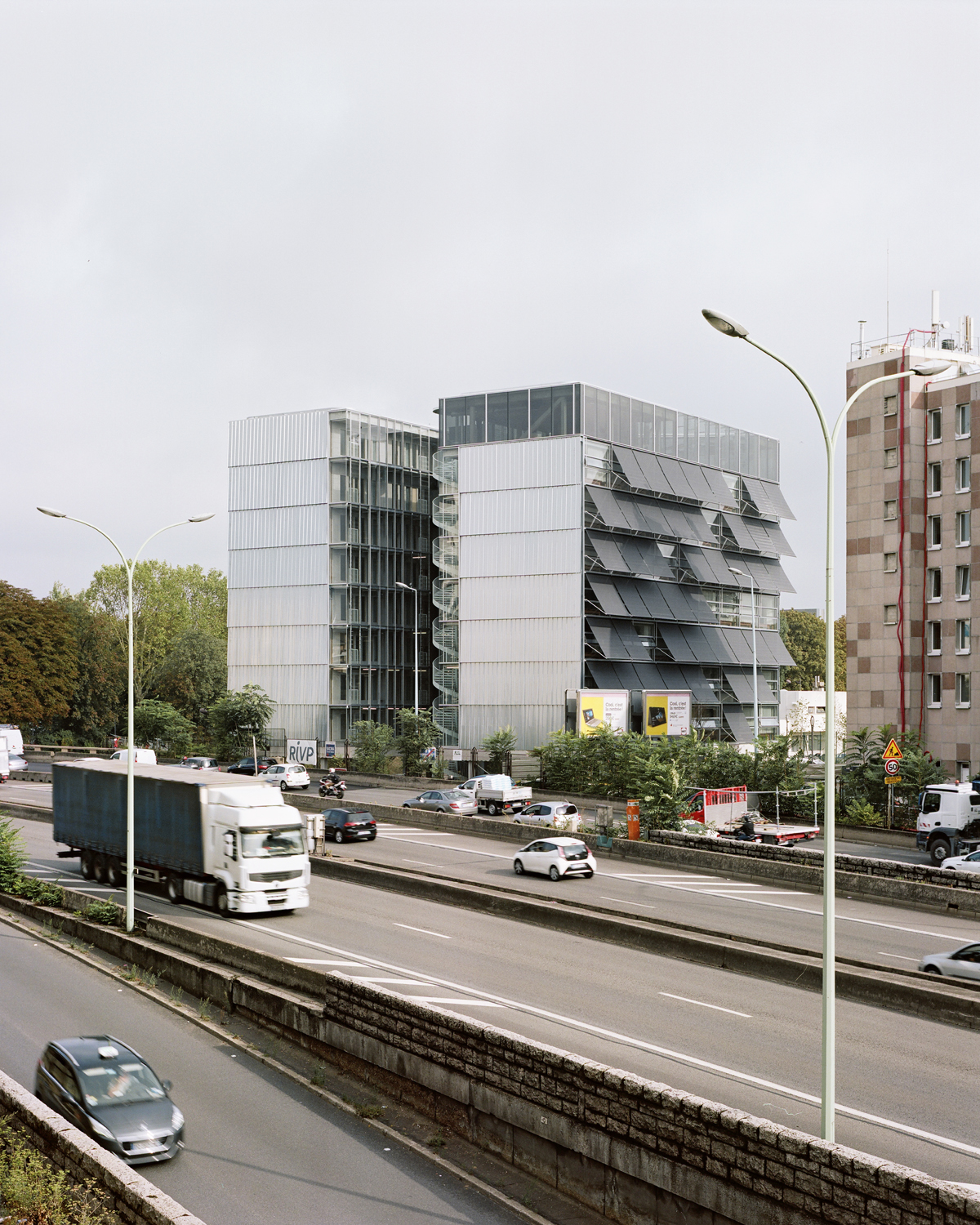
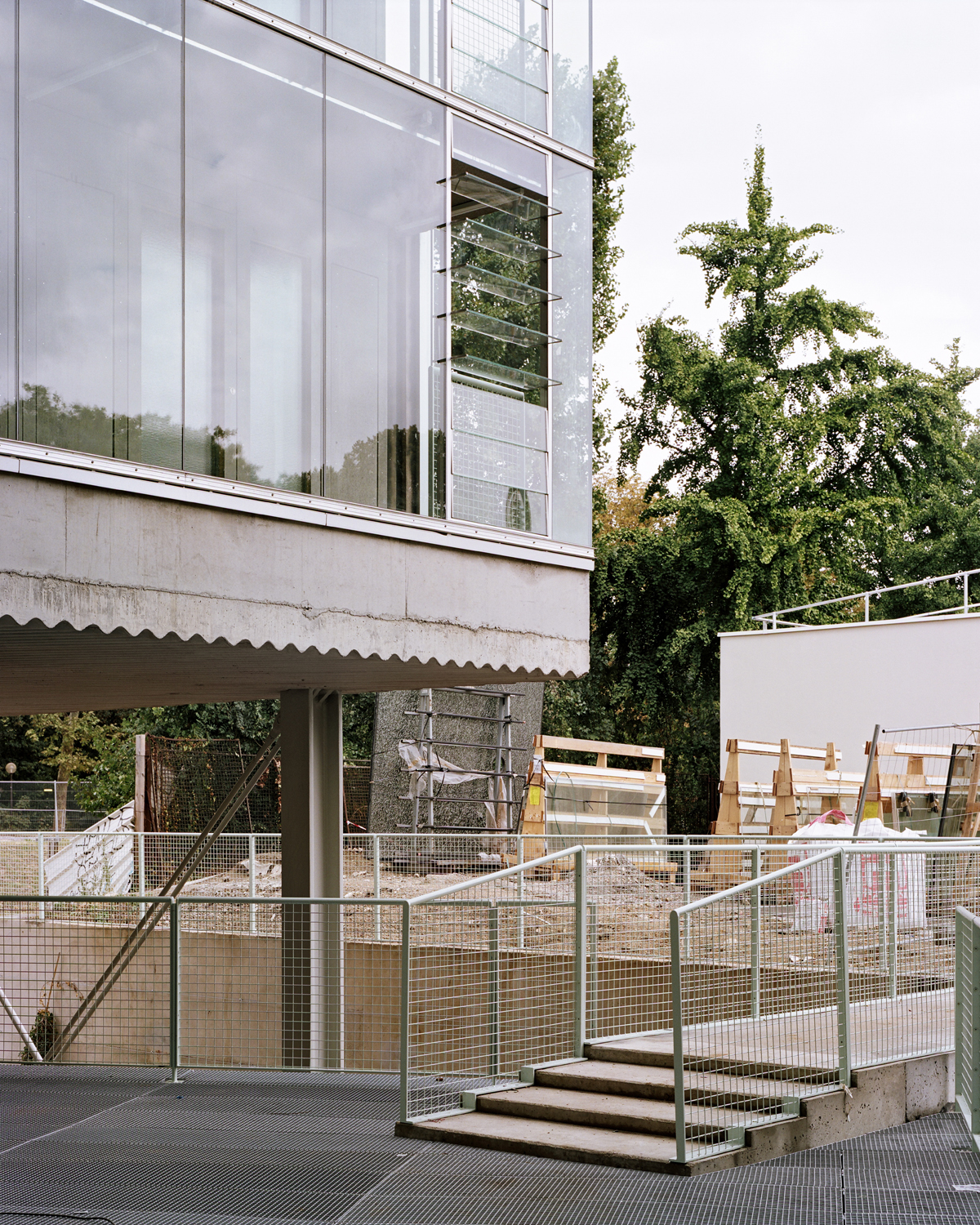
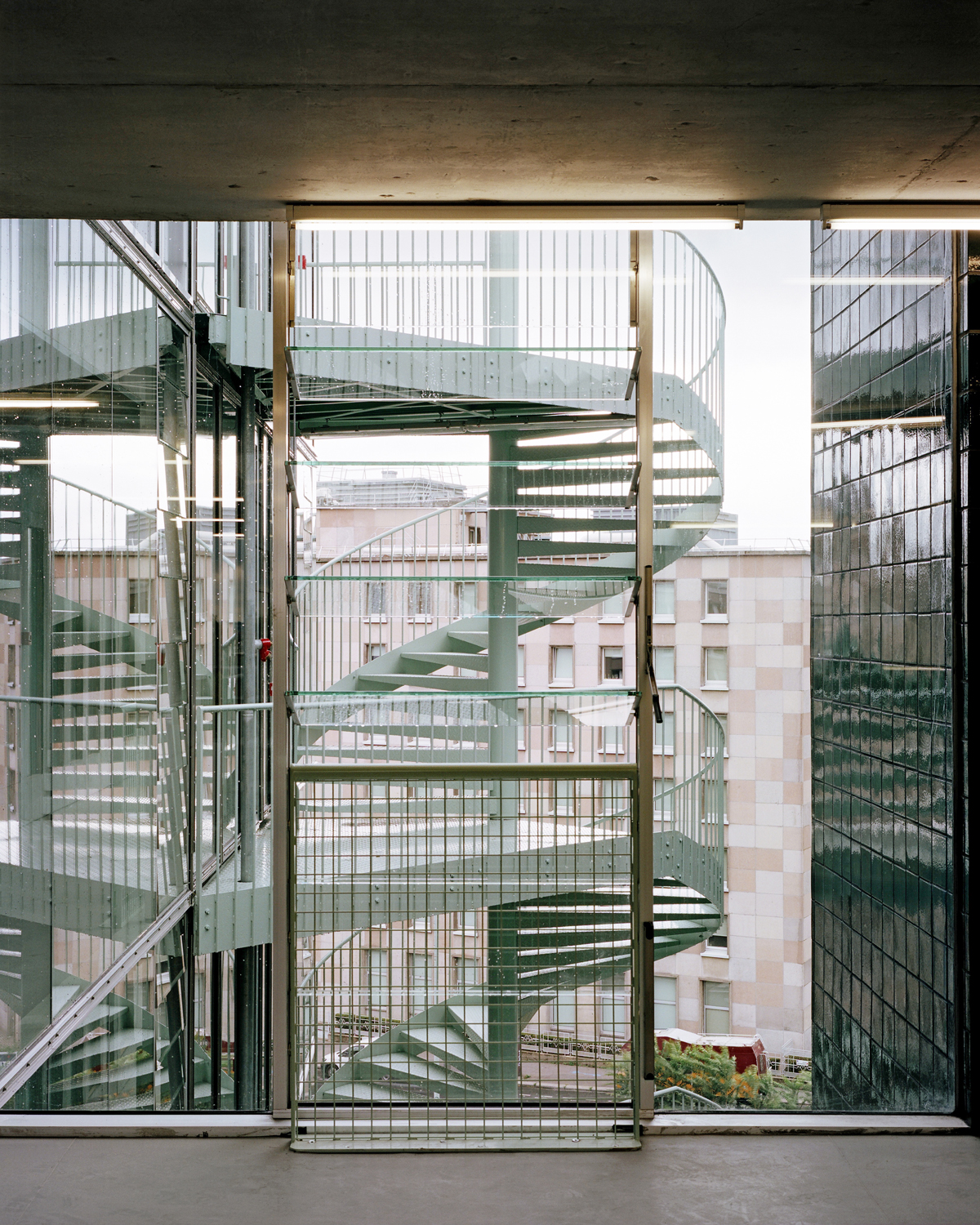


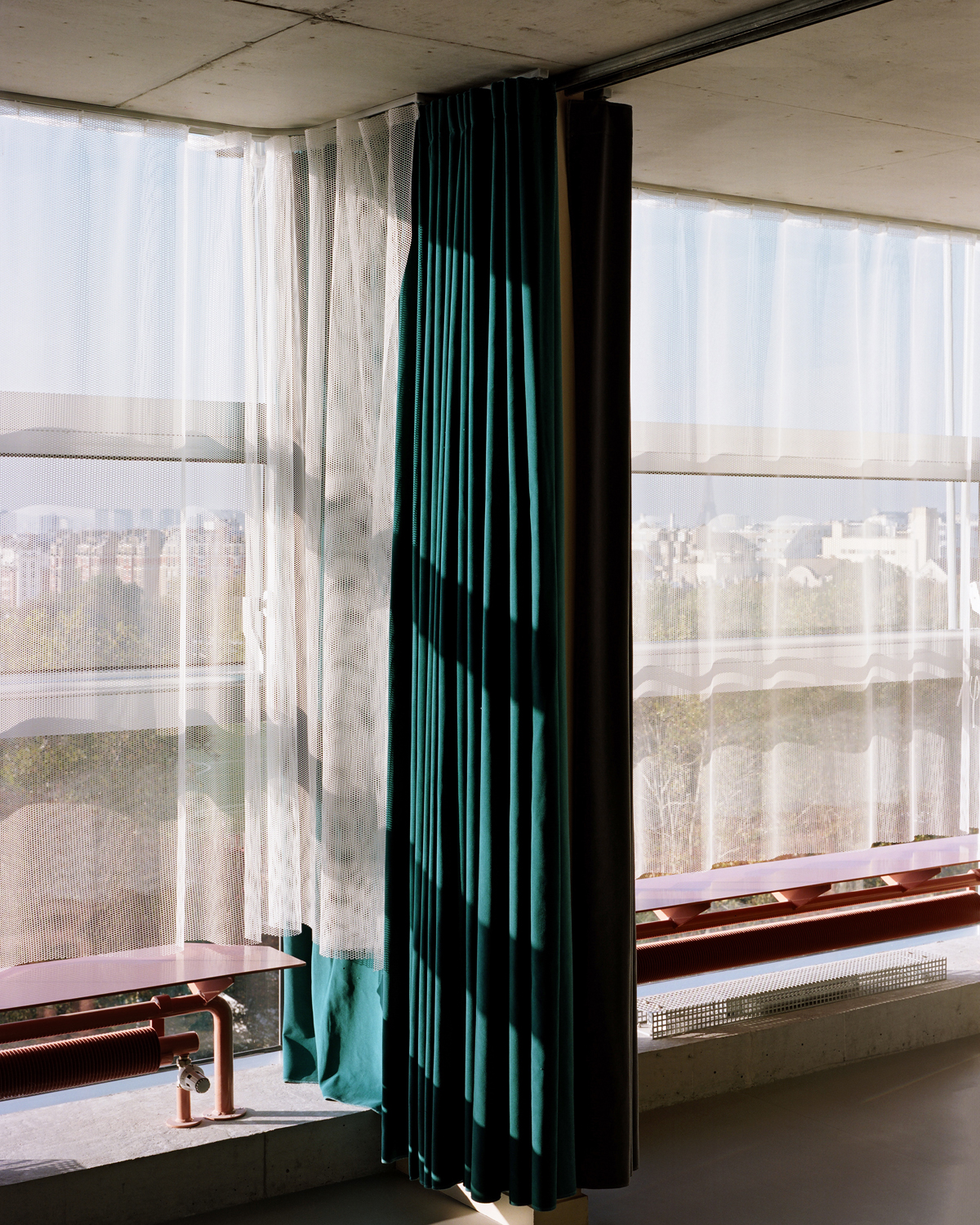
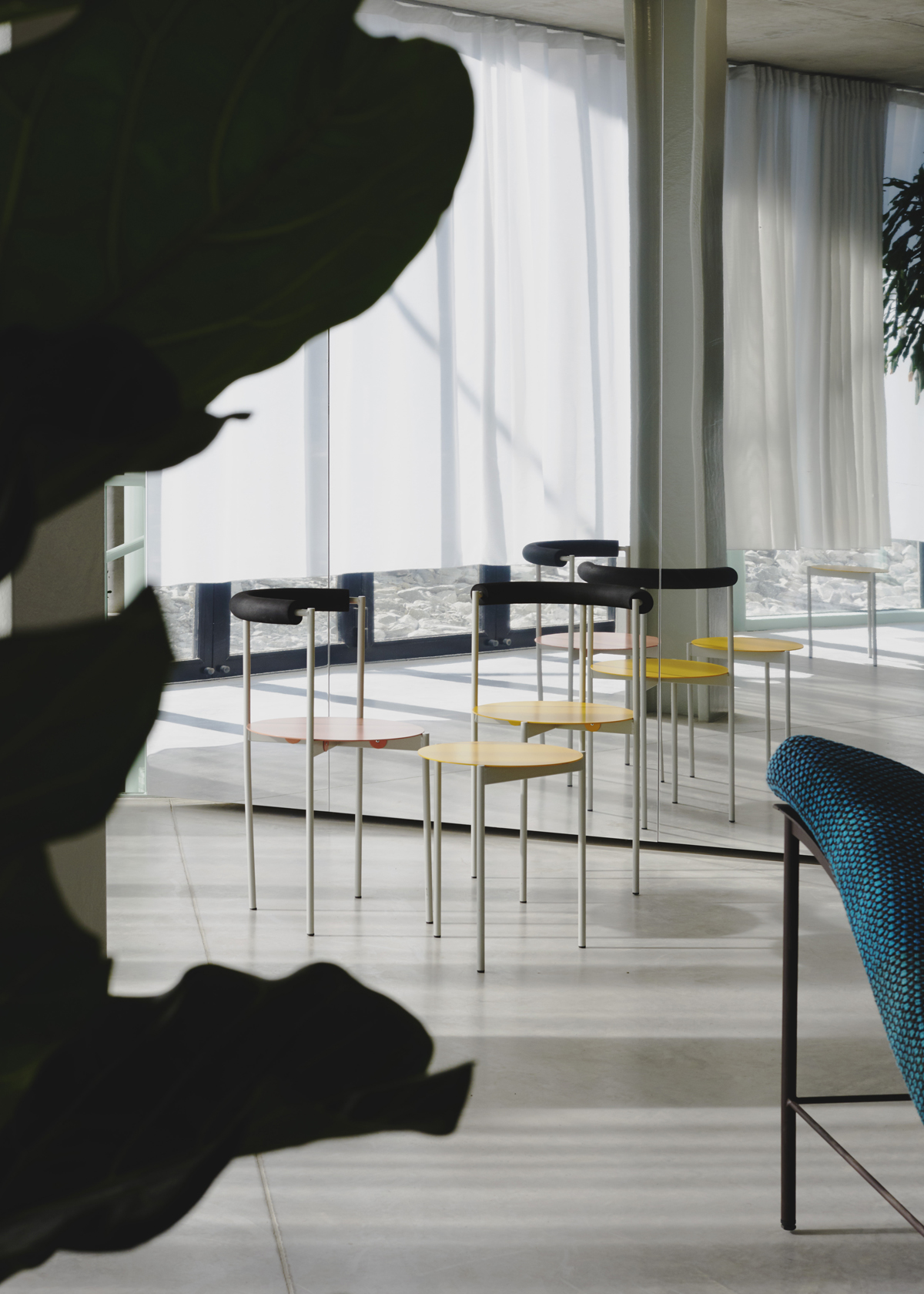
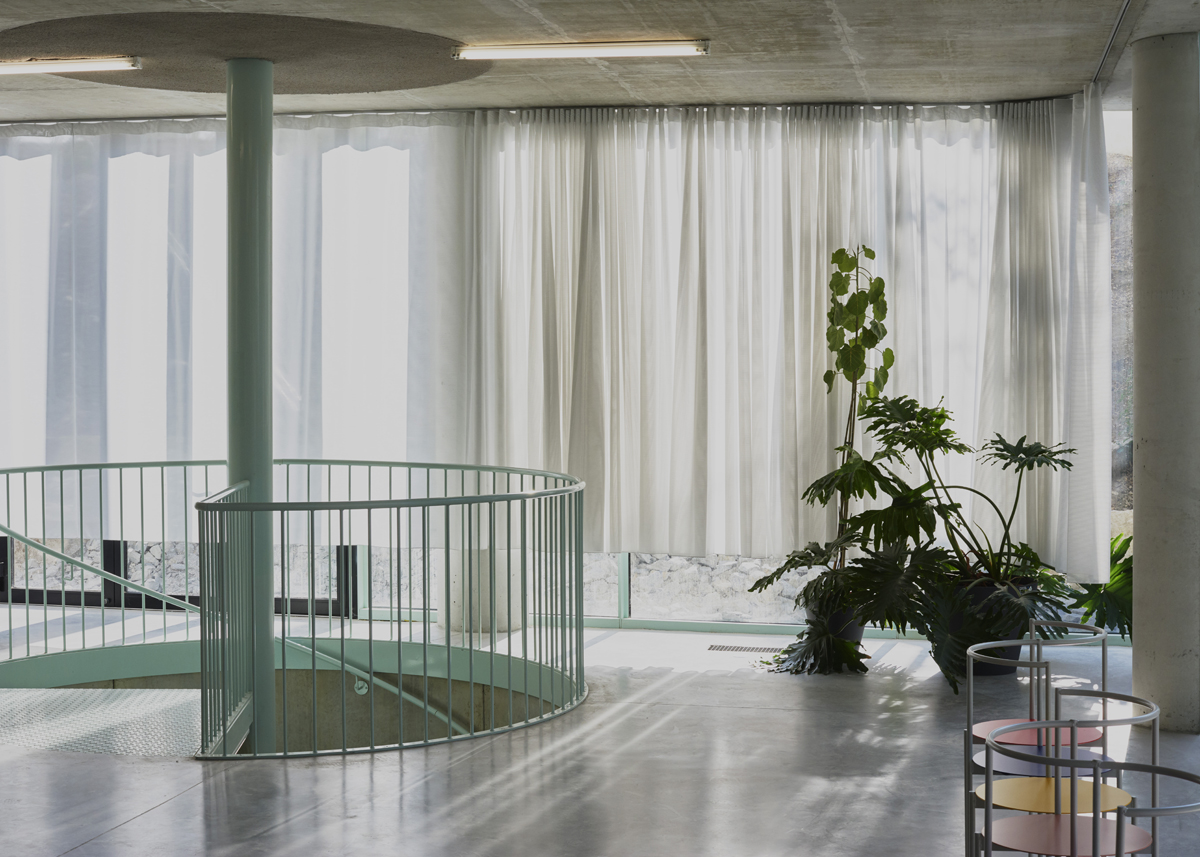
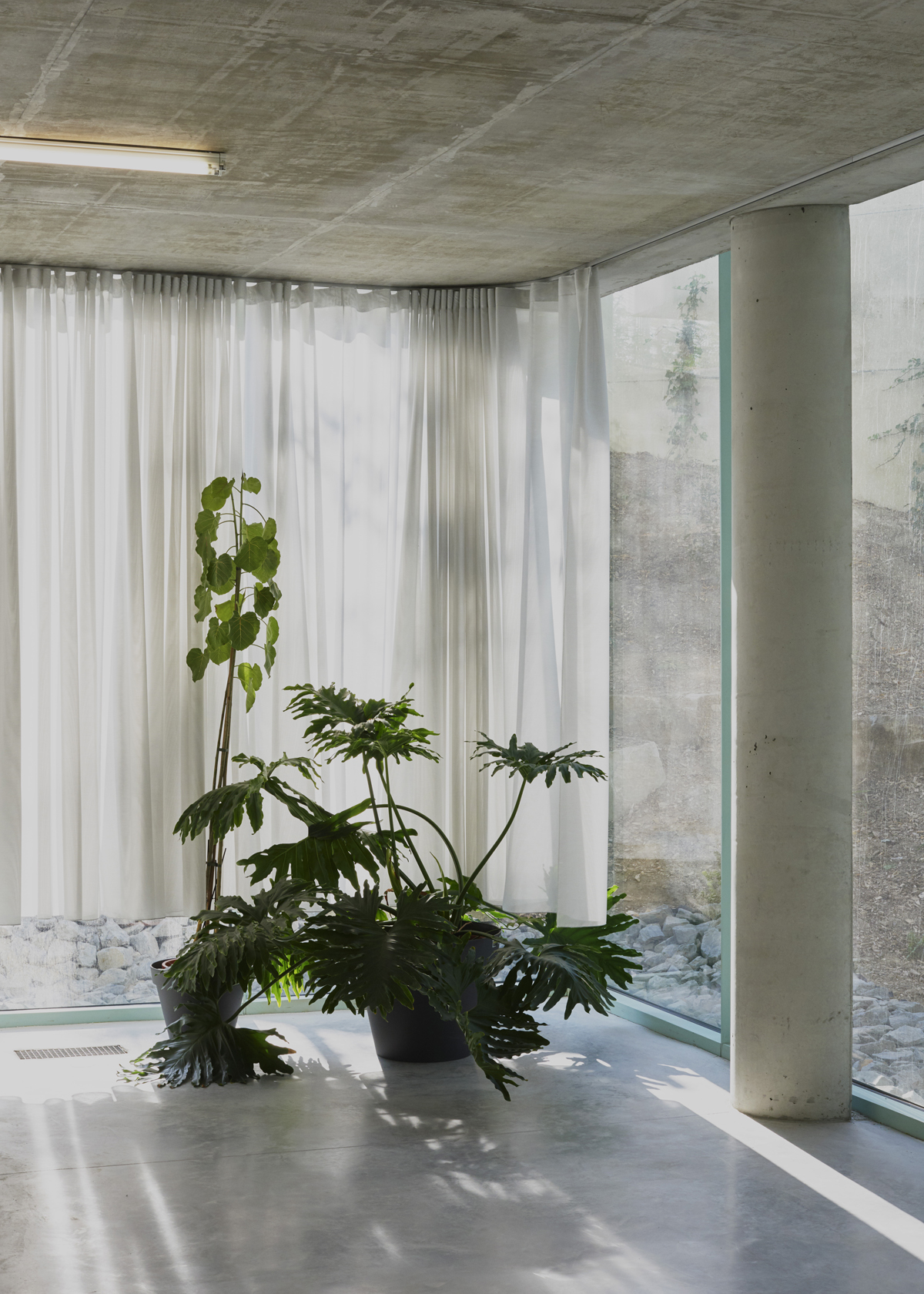
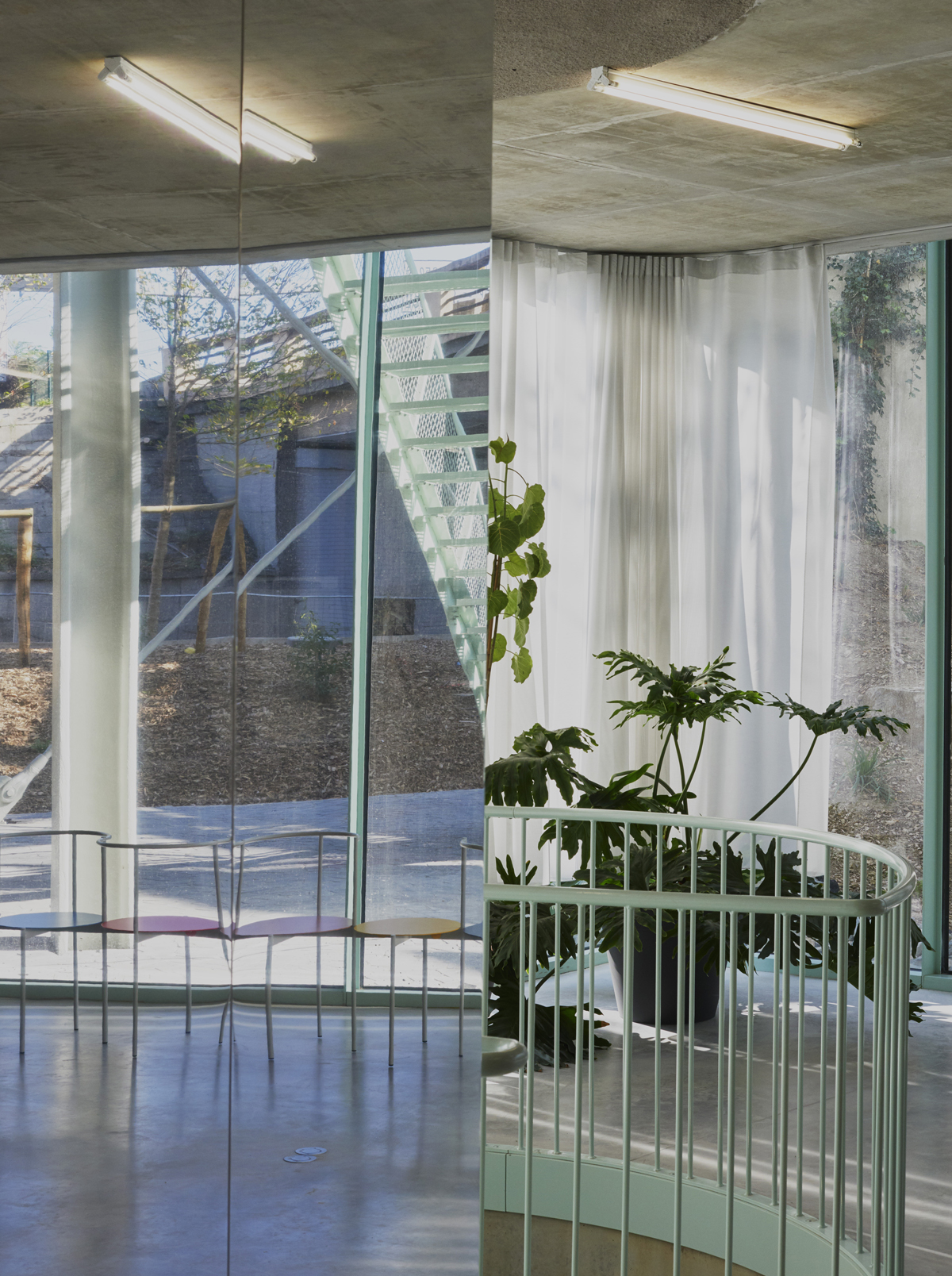
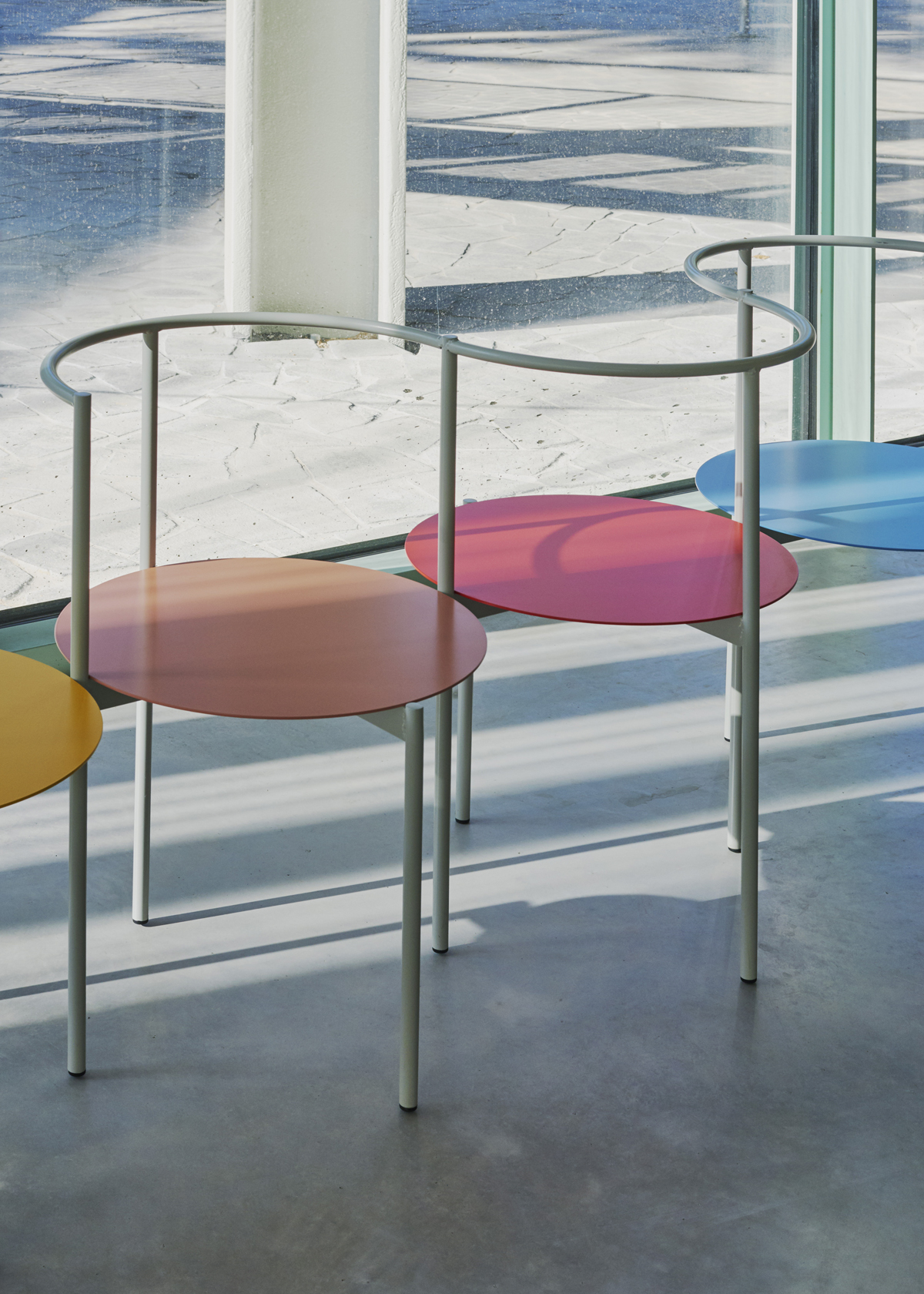
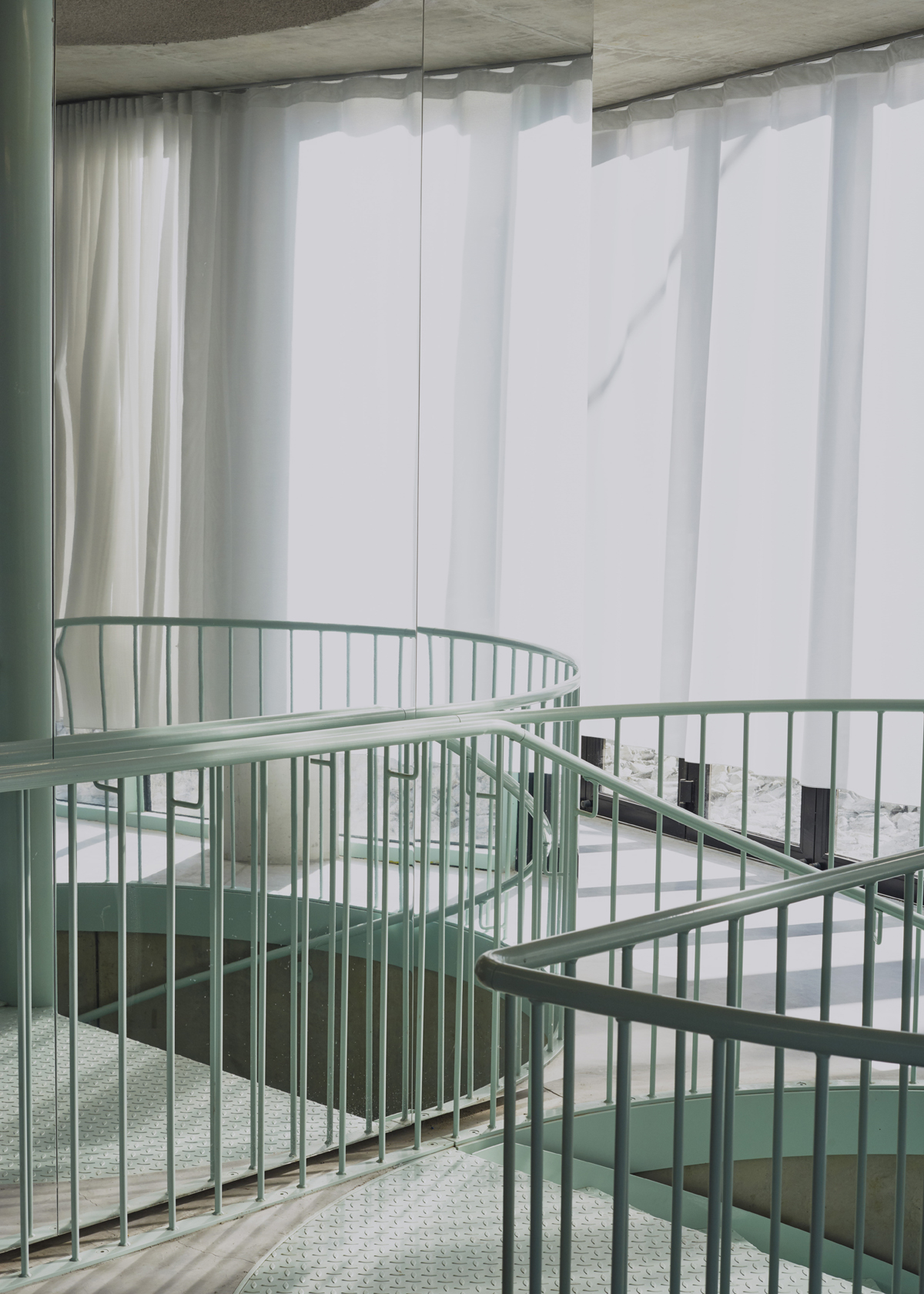
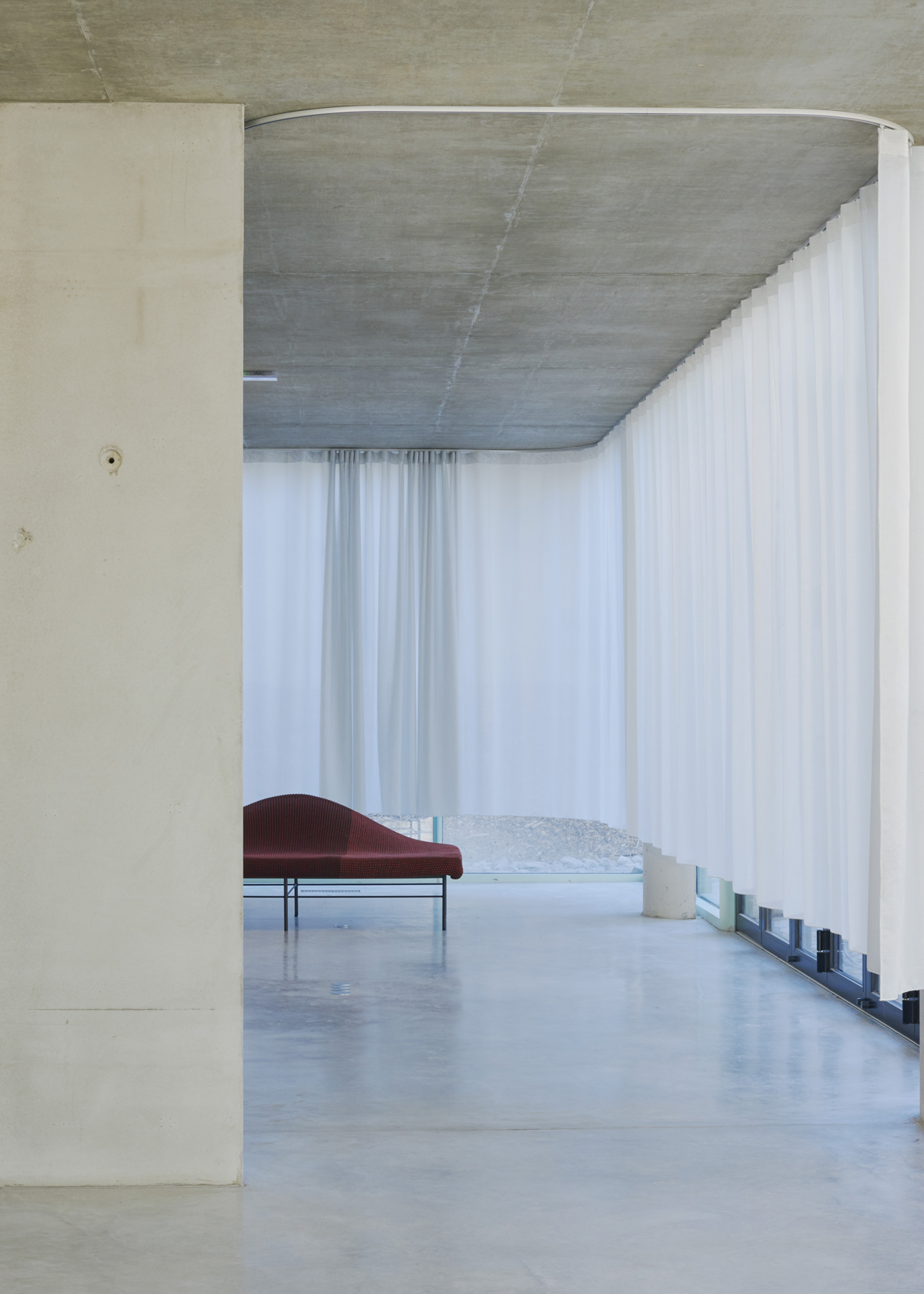
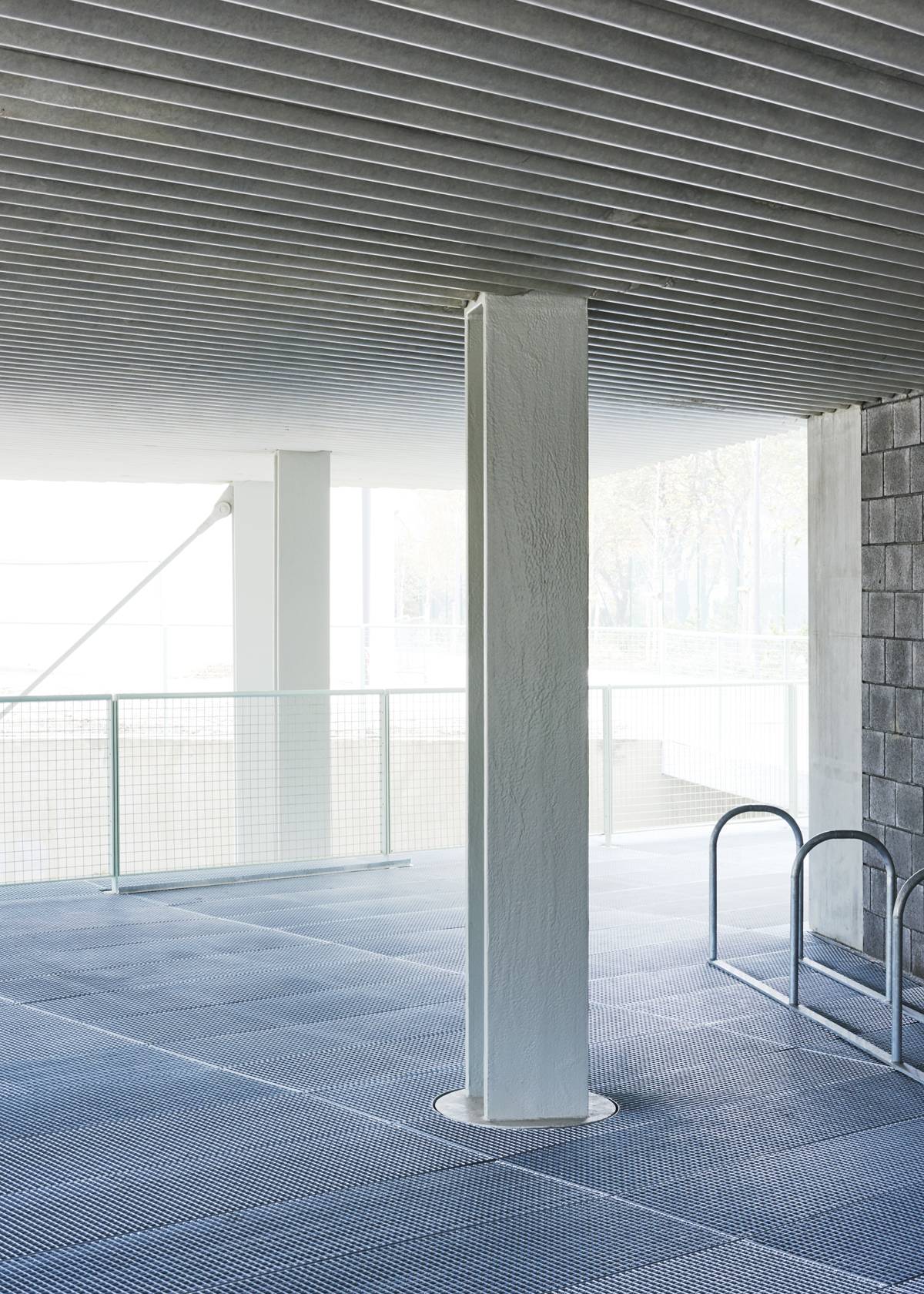

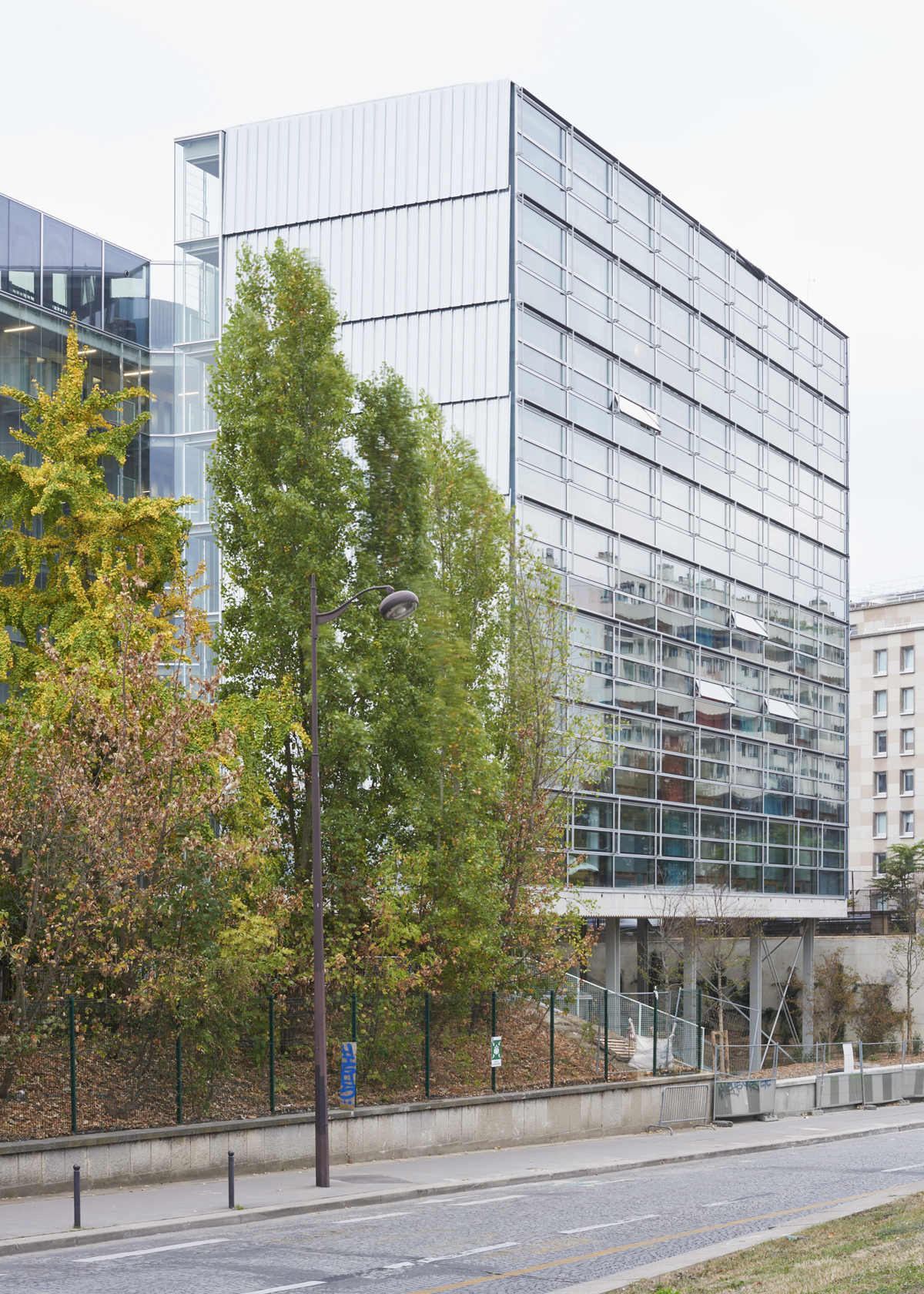
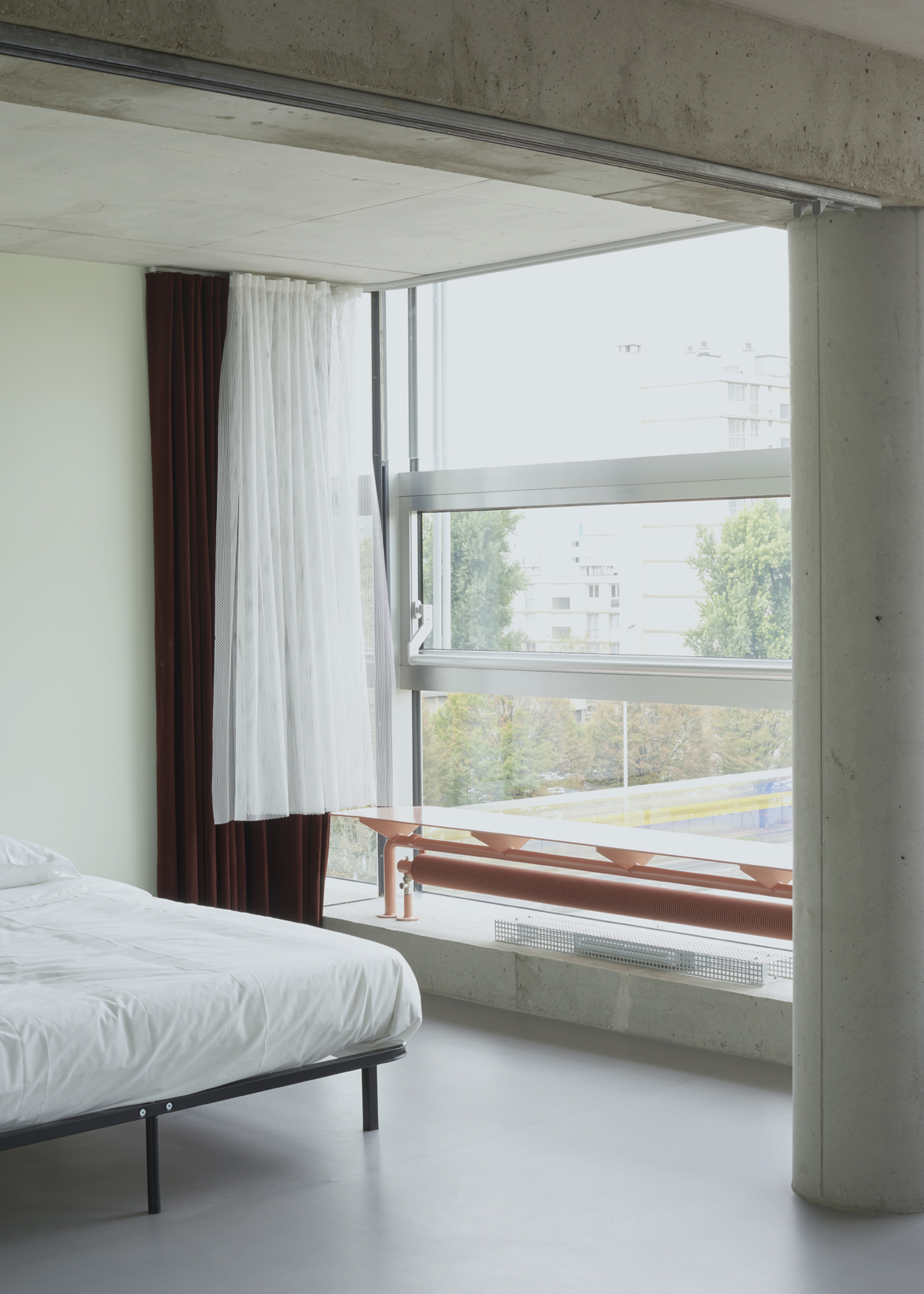
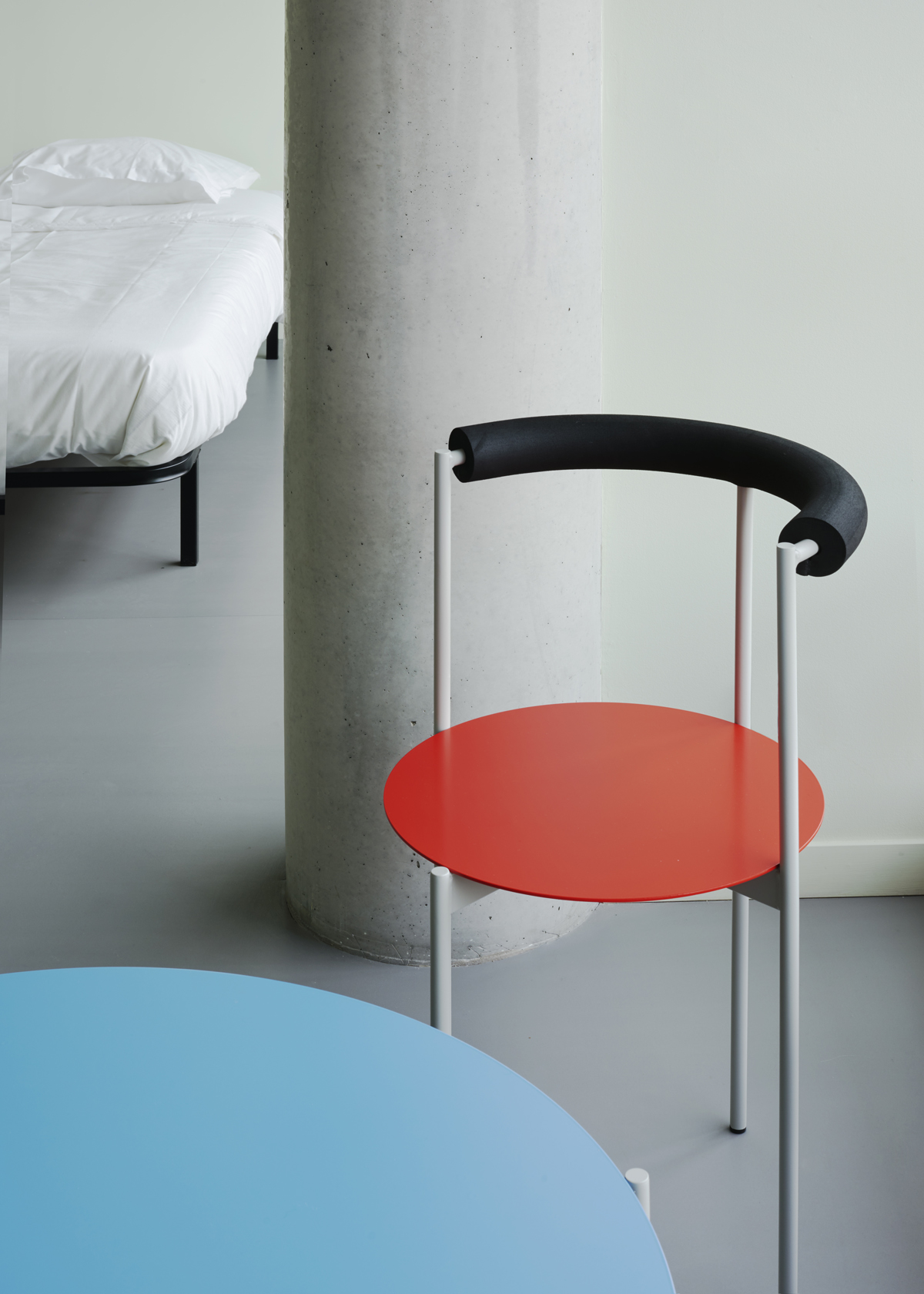
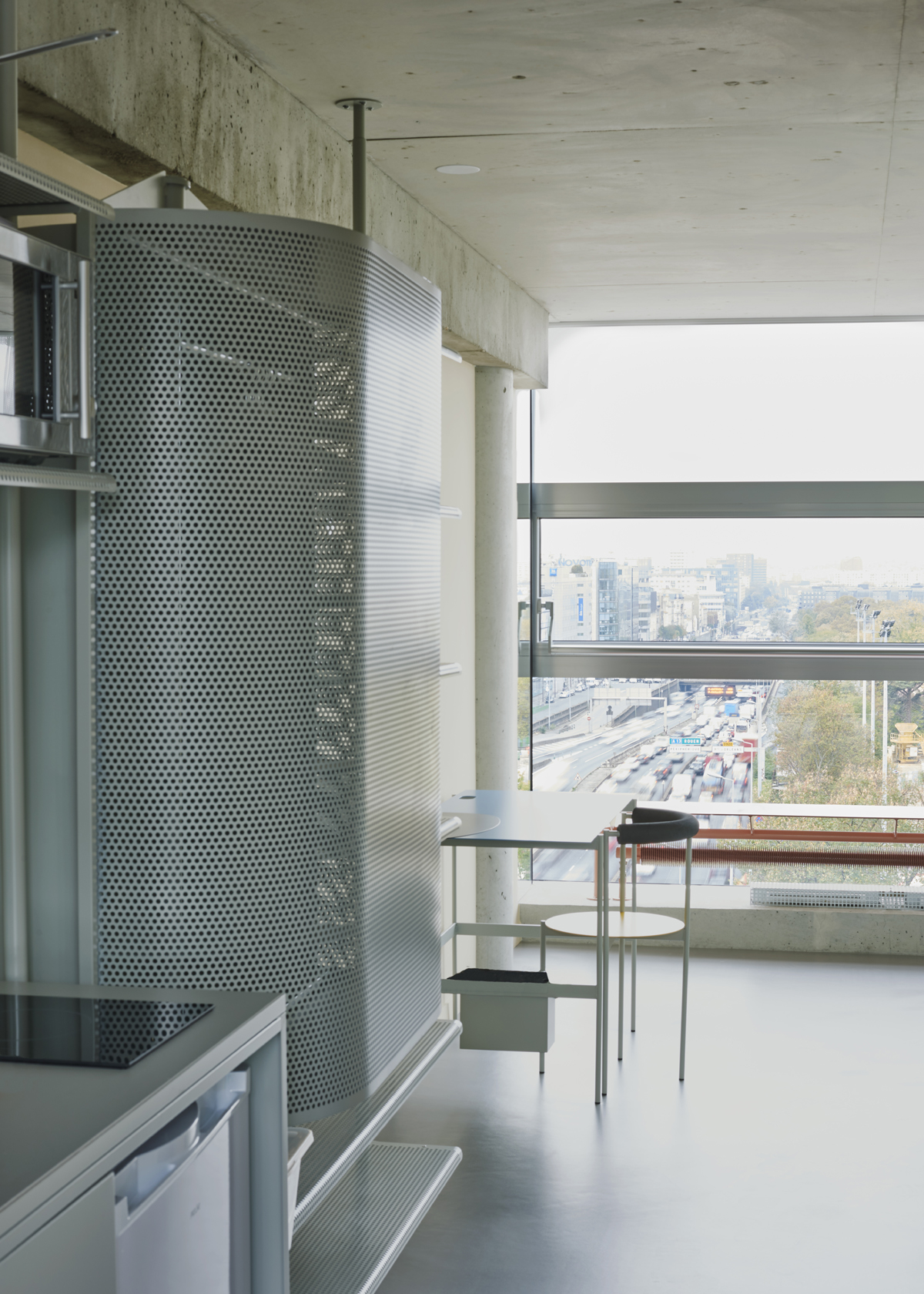

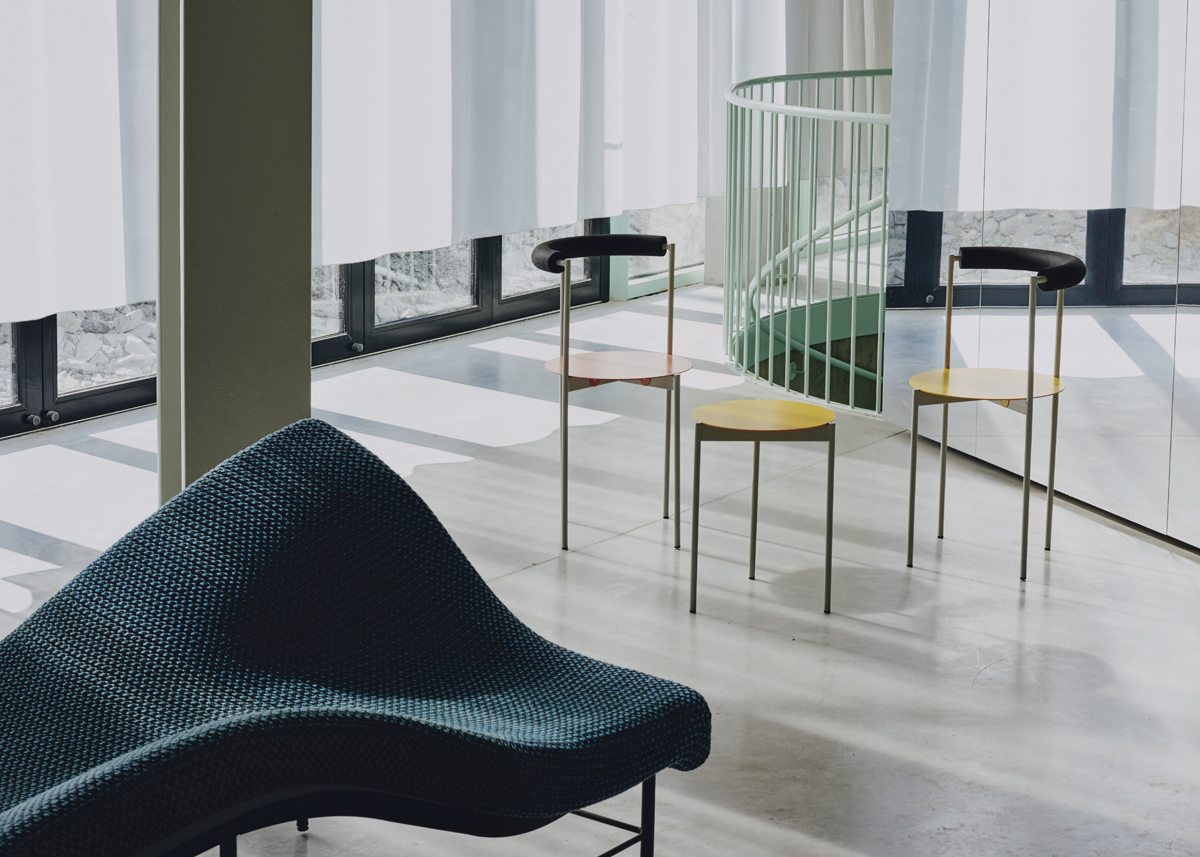
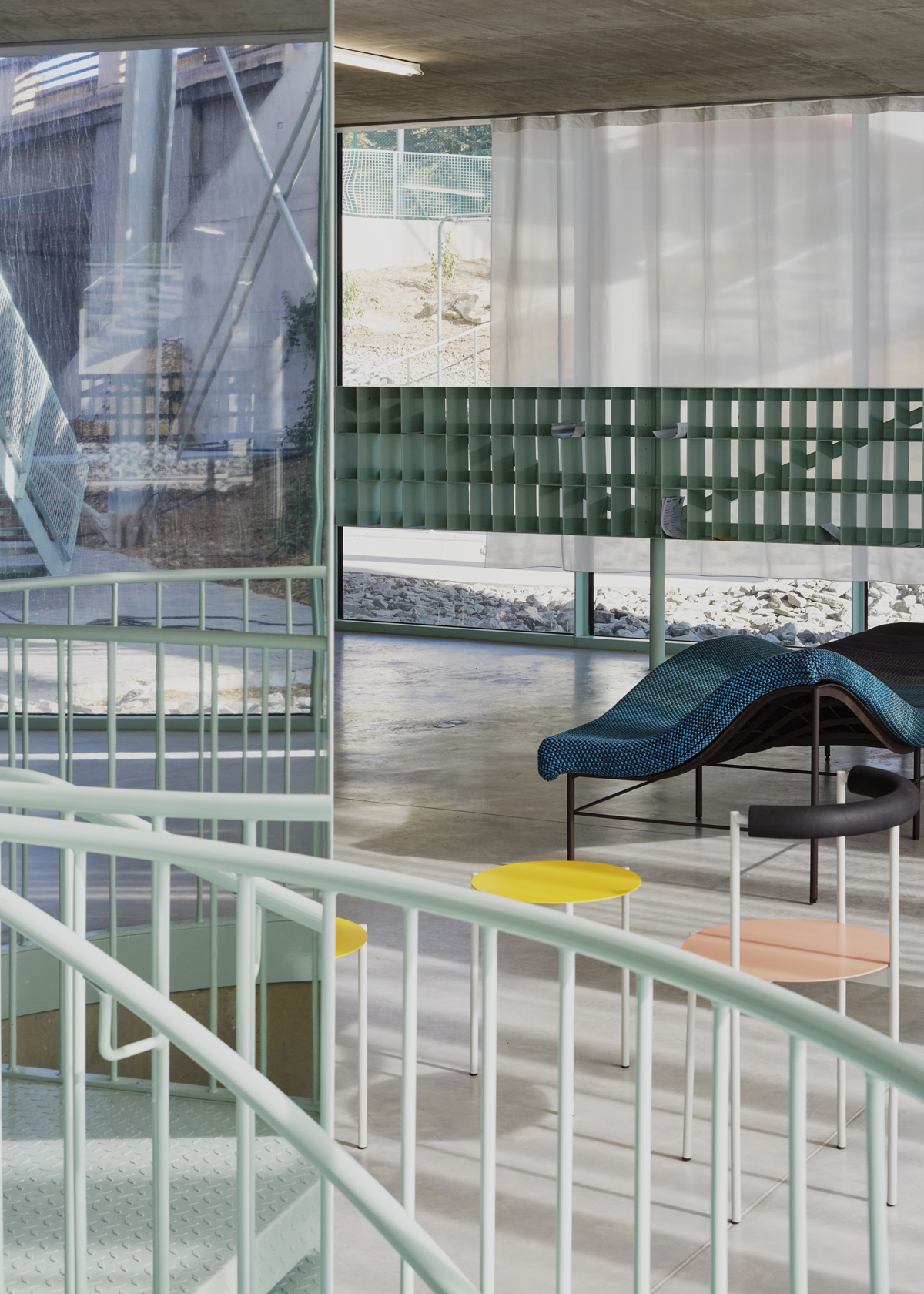
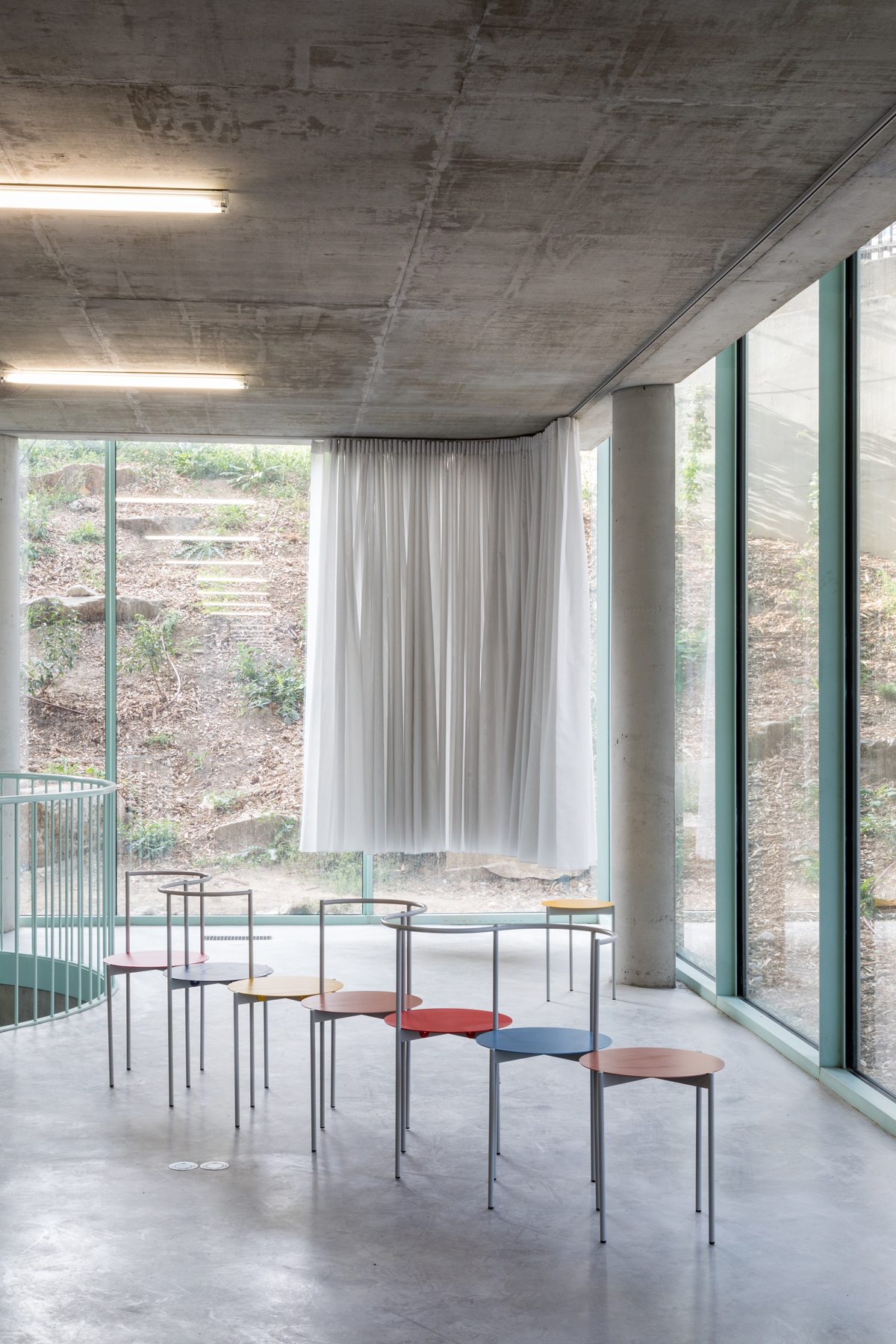
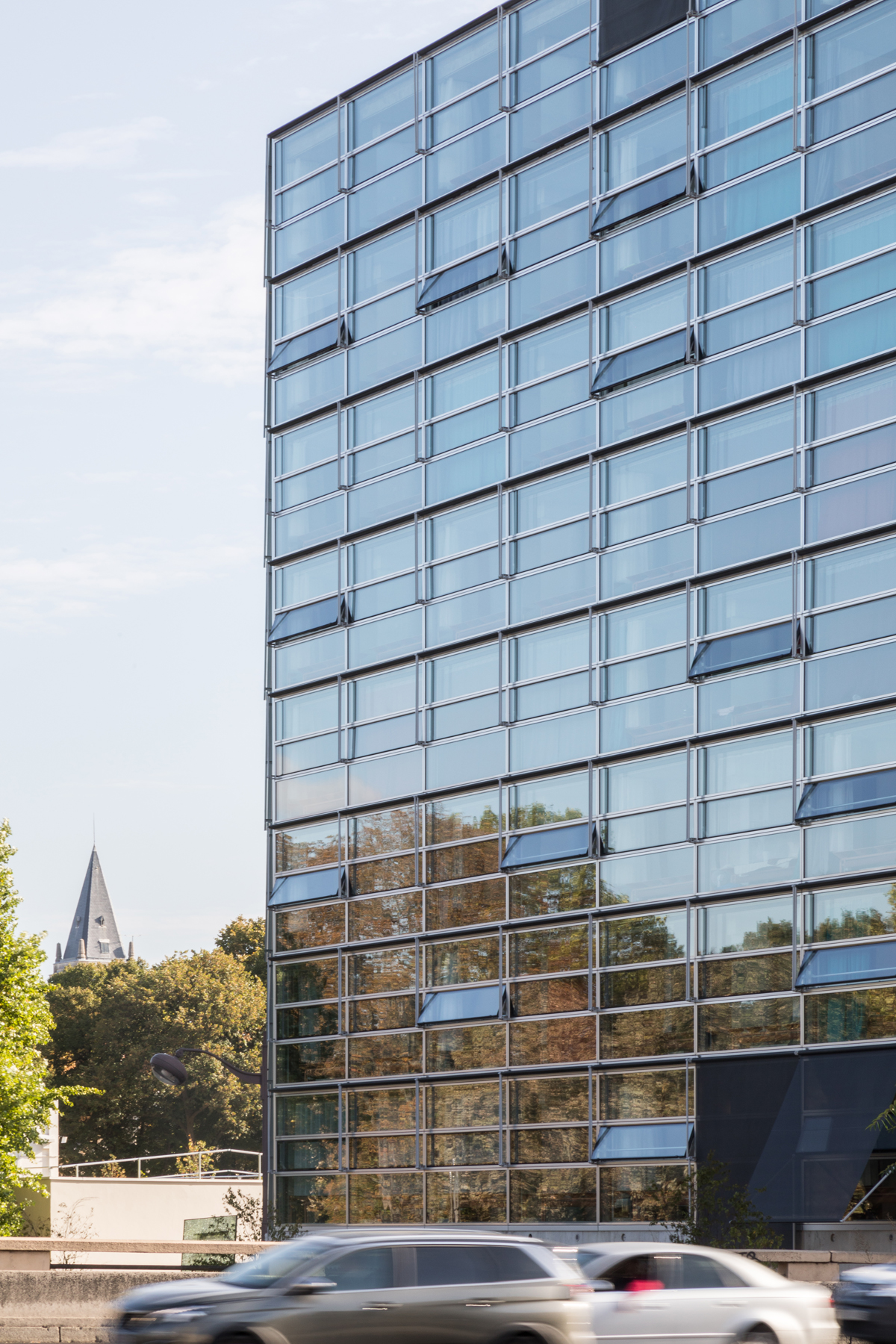
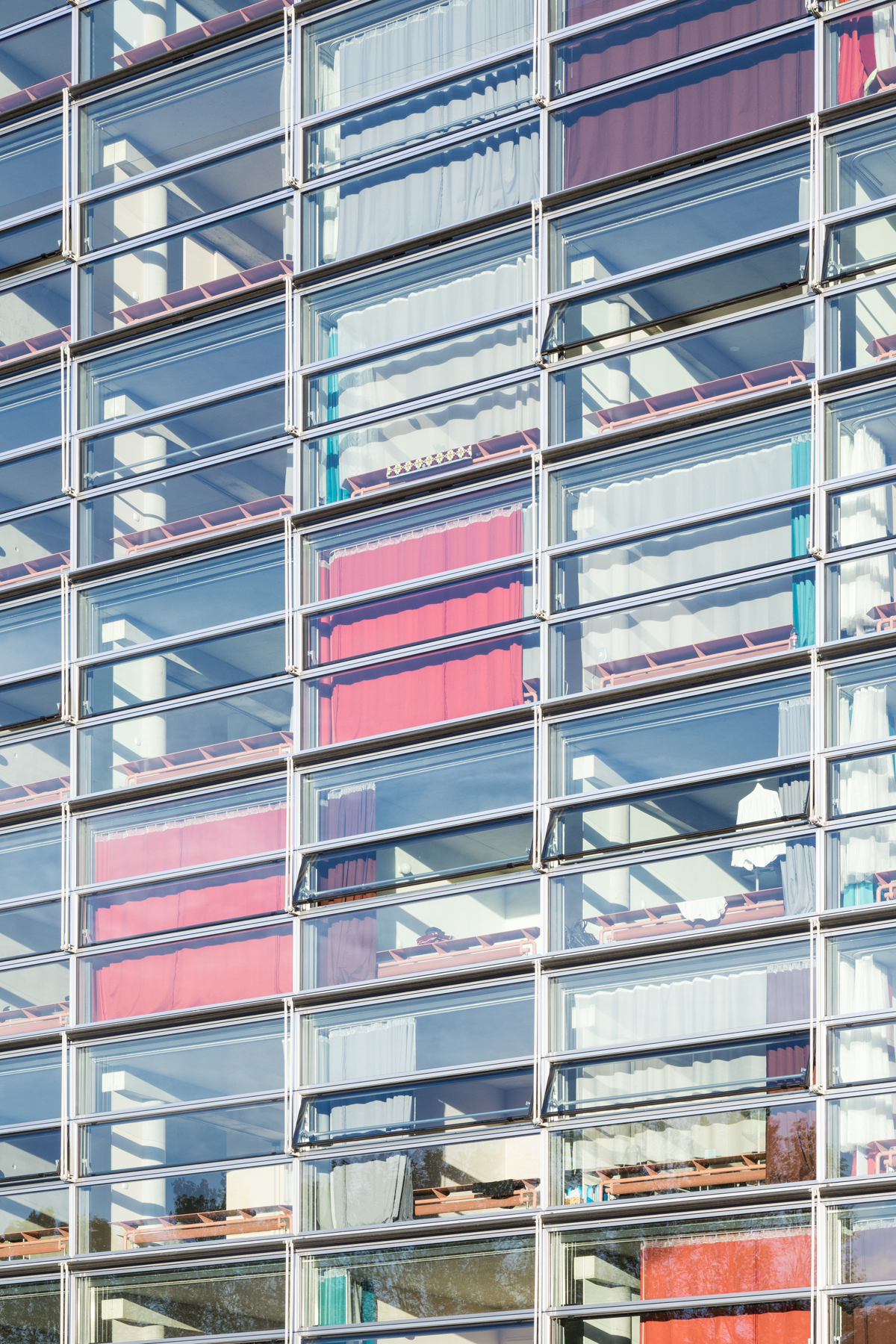
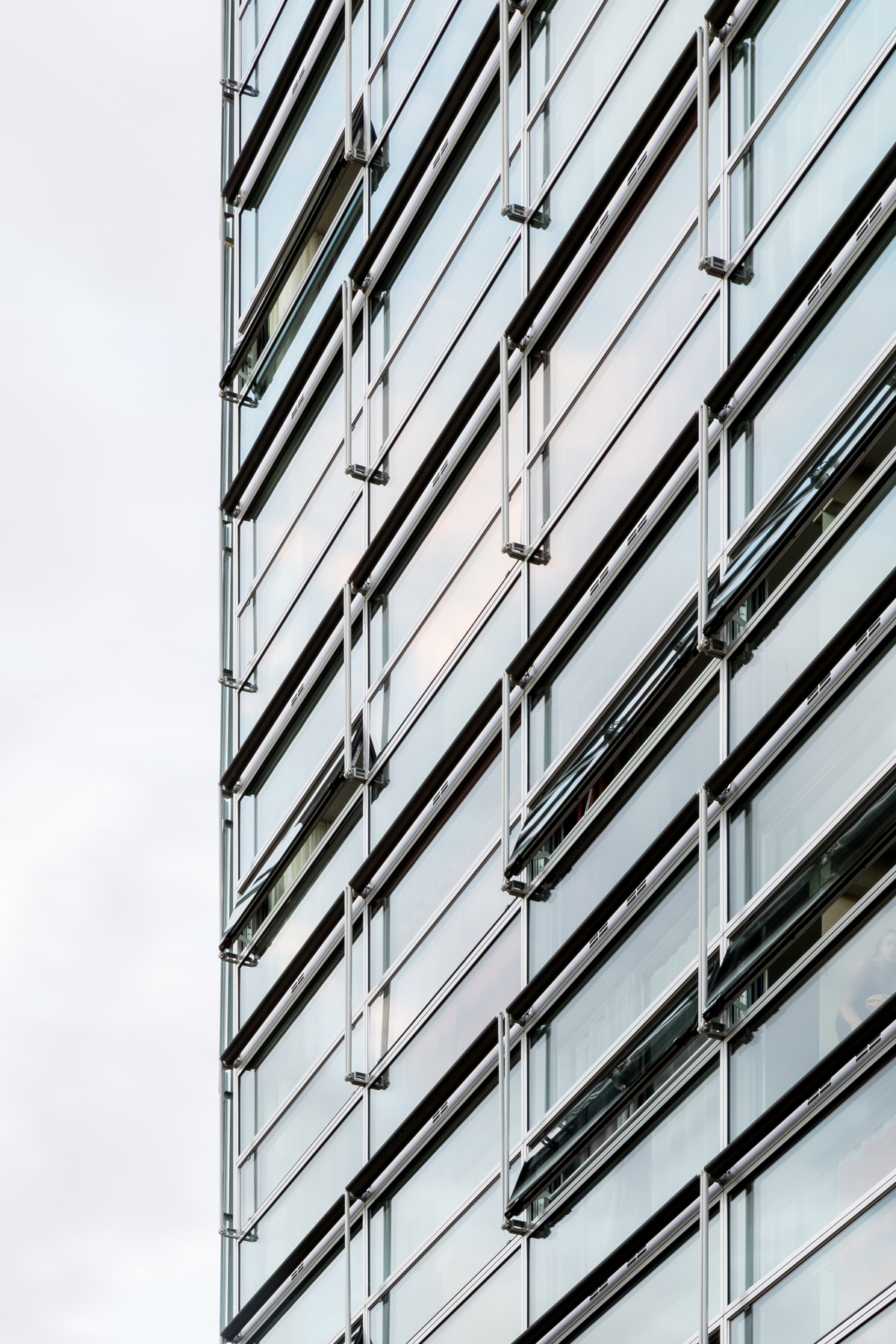





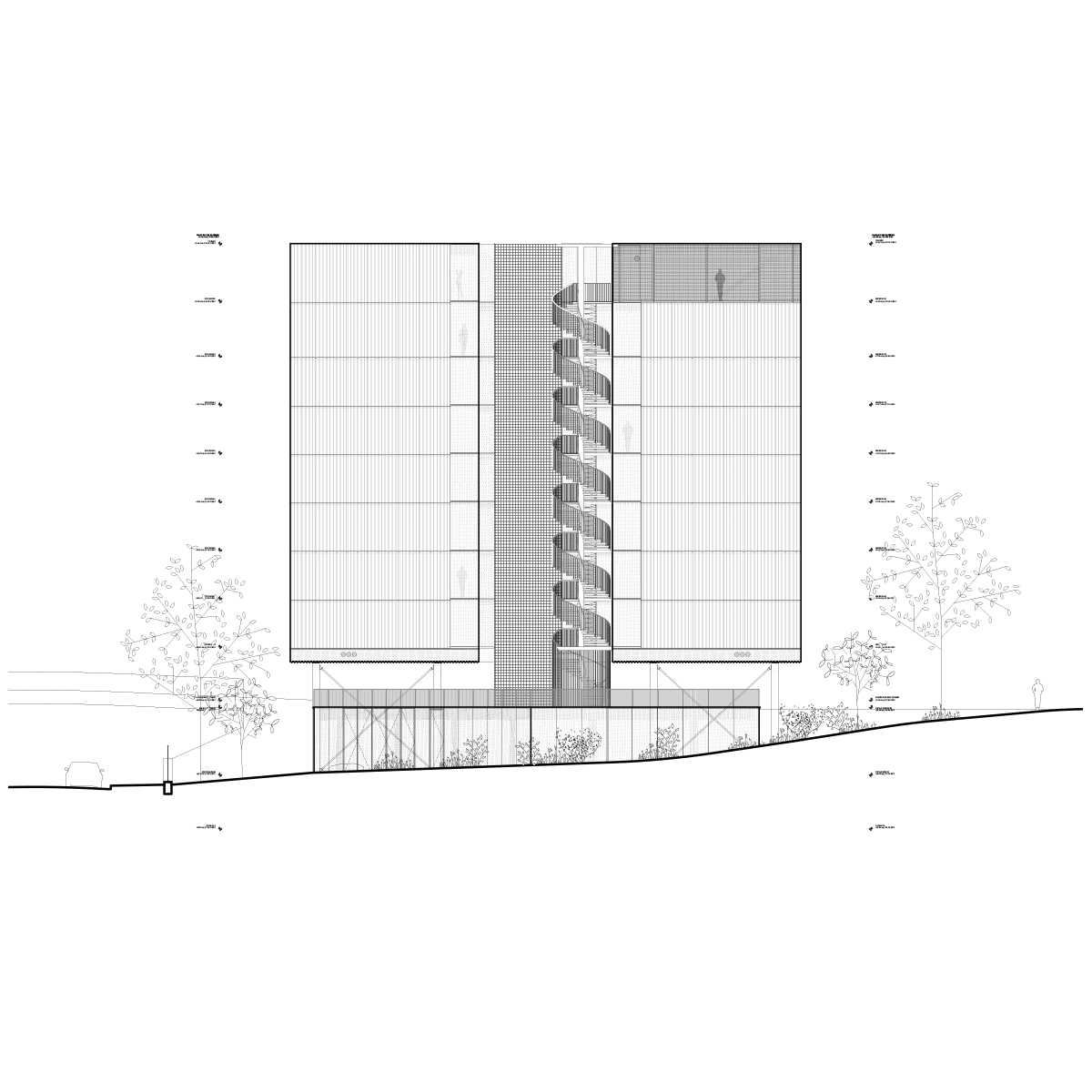
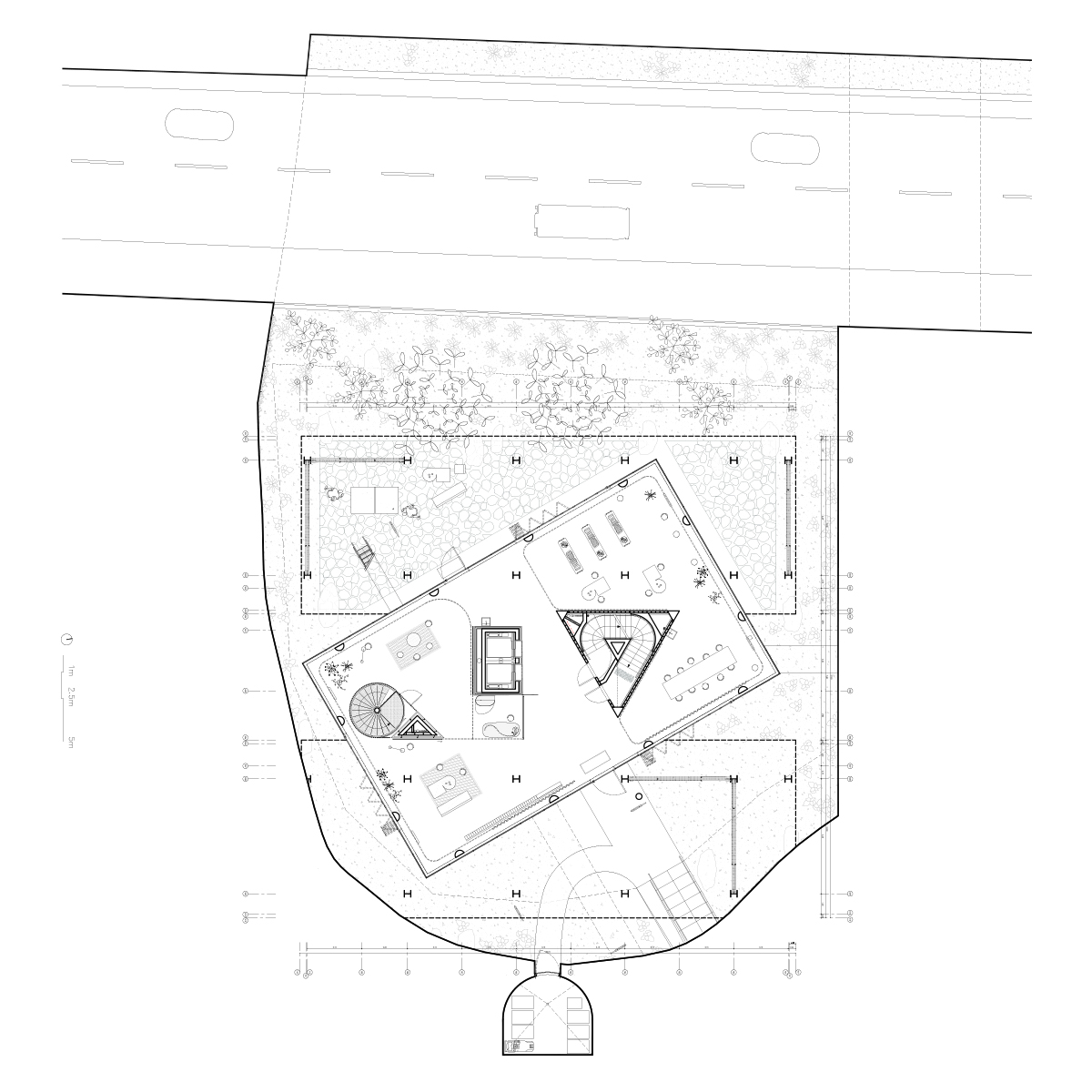

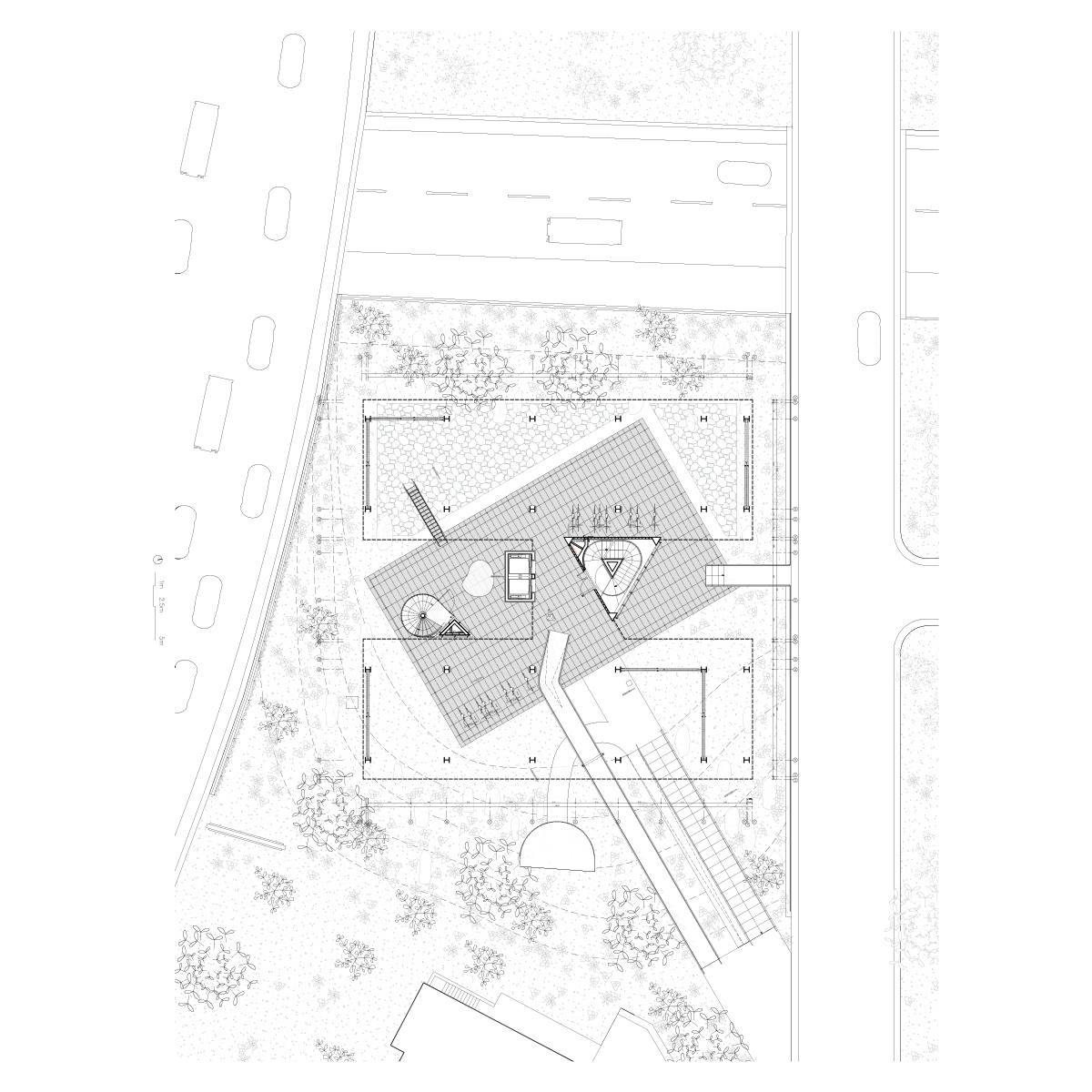




No hay comentarios:
Publicar un comentario